
This year’s Olympics are now in full swing and it’s all eyes on the athletes.
From archery and shooting to athletics and gymnastics, there’s all kind of sports taking place across Paris, France, at the moment.
One fan-favorite sport to watch is the swimming, and this year there’s a whopping 854 athletes from 187 different countries competing.
But there’s a common theme you might have spotted with some of the swimmers and that’s the unusual dark red circles they have on their backs.
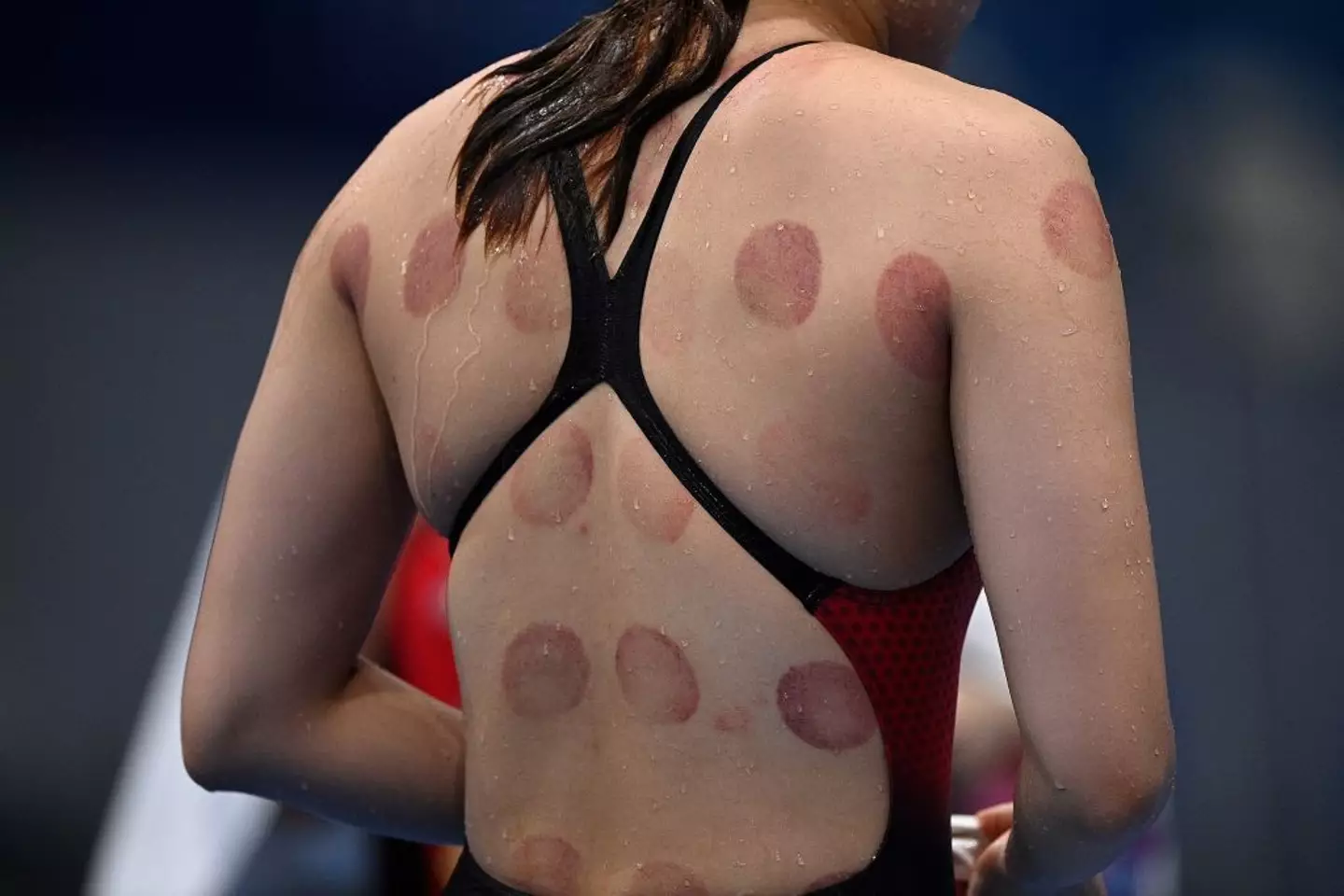
While it might look like they’ve had a fight with an octopus and lost, there’s a very different reason for the odd markings.
It turns out that the large spots are from cupping therapy – an ancient healing technique that involves placing cups on the skin to create suction and increase blood flow to the area.
The unconventional method is supposed to help with muscle recovery and is used as a type of deep tissue massage.
Some athletes were spotted with cupping therapy bruises back at the Rio Olympics in 2016, and it’s still seemingly popular now.
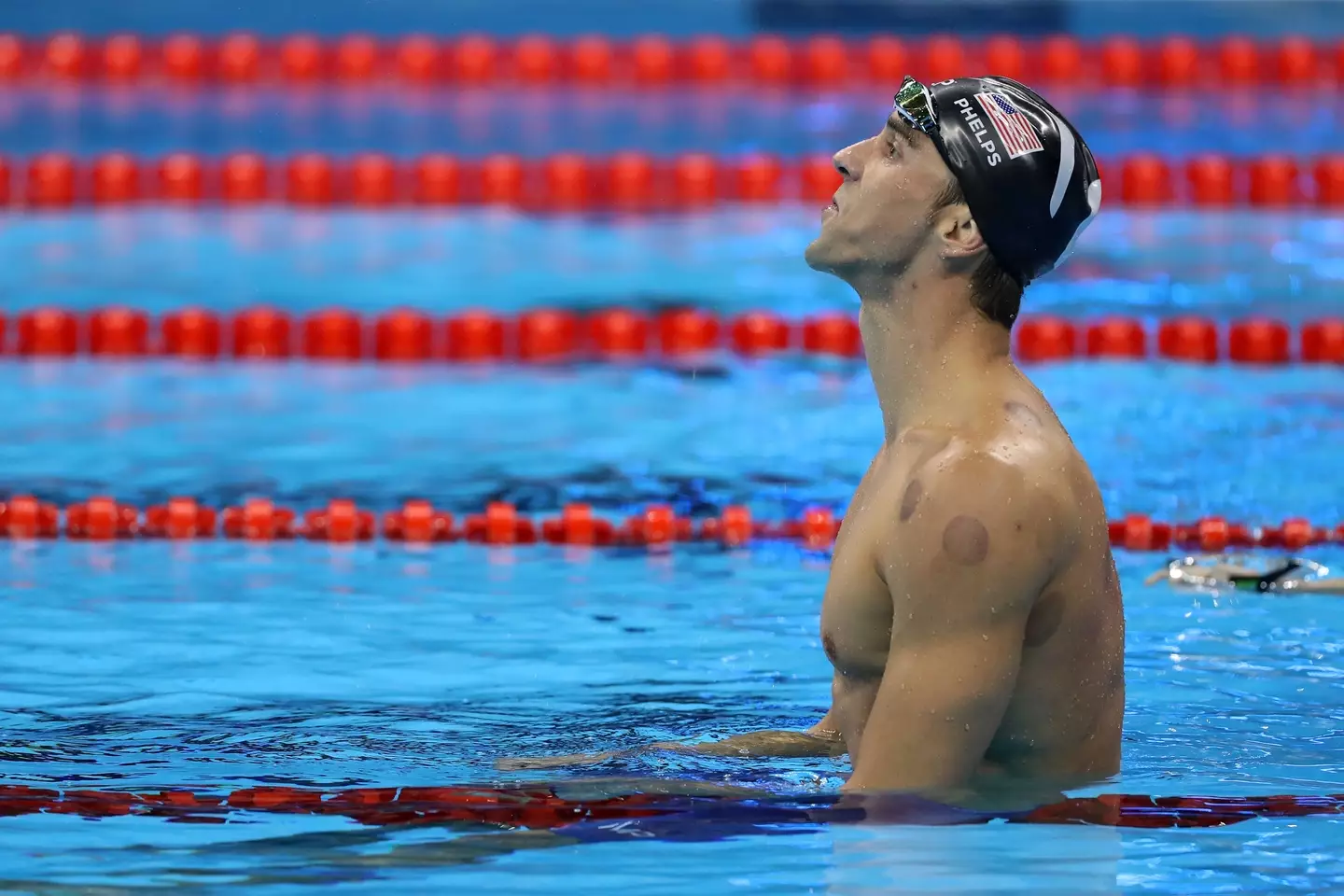
Gymnast Alexander Naddour told USA Today back in 2016 that cupping was supposedly the ‘secret’ to his health.
He added: “It’s been better than any money I’ve spent on anything else.”
Away from the Games, basketball player Kyle Singler has also praised cupping therapy.
“The bruises do look more intense than what they actually feel like, but the benefit from it is really great,” he previously insisted.
Singler continued to tell Sports Illustrated: “You’re not necessarily getting the immediate response that you might want but over time it does help with recovery and loosening tissue and stuff like that.”
But does cupping therapy actually work according to experts? It’s seems as if the jury’s still out.
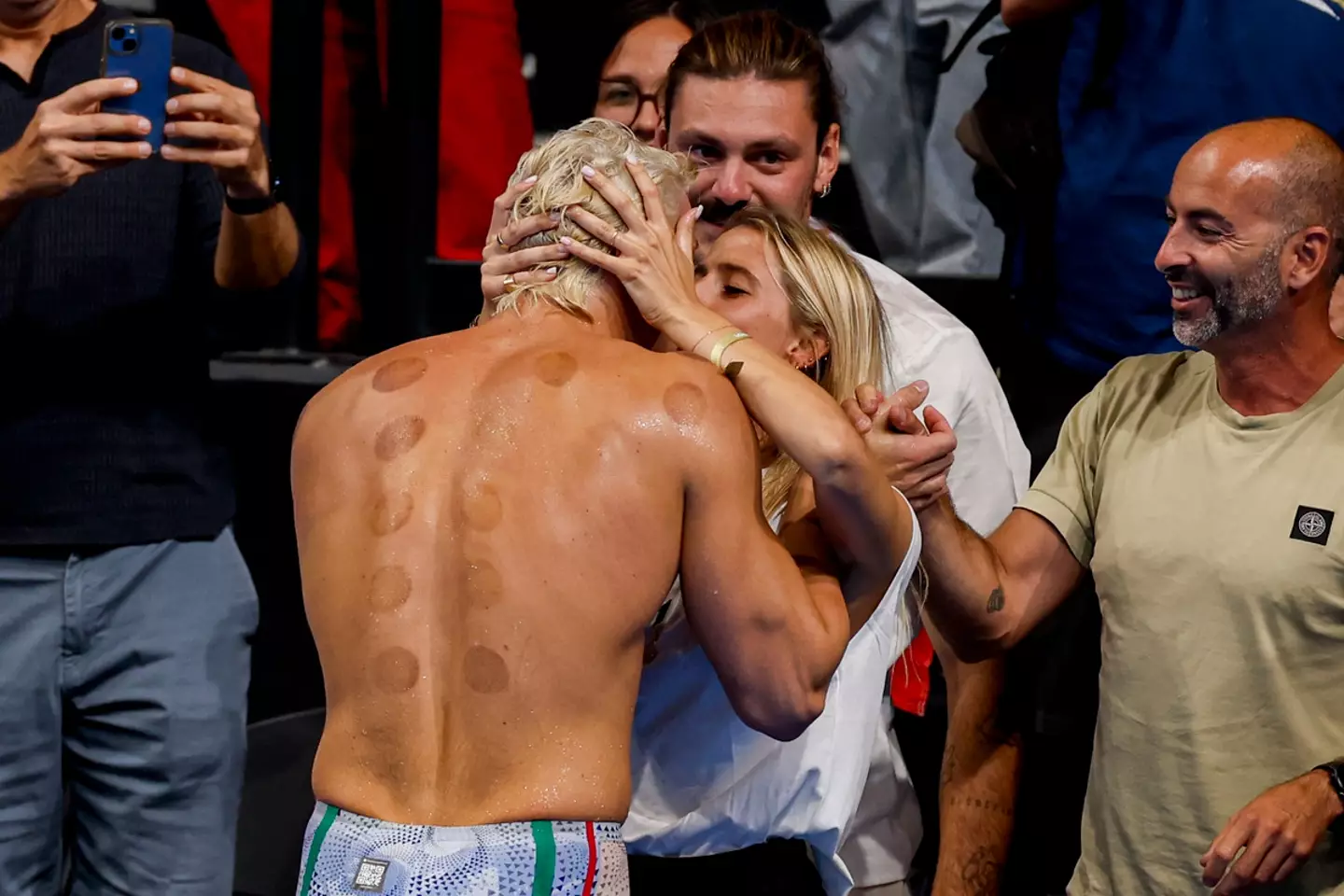
According to Harvard Health, some studies have found that cupping might provide some relief for a number of musculoskeletal and sports-related conditions. The quality of this evidence was ‘limited’, however.
Elsewhere a 2022 review found that wet (as opposed to dry cupping) was effective for lower back pain.
While the bruises people get from cupping are pretty gnarly, the therapy is generally seen as safe to practice – even if people aren’t 100 percent on how affective it is.
“Most experts agree that cupping is safe. As long as those treated don’t mind the circular discolorations (which fade over a number of days or weeks), side effects tend to be limited to the pinch experienced during skin suction,” Harvard Health explains.
“It’s quite unusual that cupping causes any serious problems (though, rarely, skin infections have been reported).”
There you have it, folks.
My Daughter’s MIL Called Me a Beggar and Kicked Me Out of My Granddaughter’s Birthday Party – Story of the Day

I spent the little I had just to see my granddaughter smile on her birthday. But before she even saw me, her other grandma called me a beggar and wanted to have me thrown out, like I didn’t matter at all.
Five years.
That’s how long I had been living in silence…
Silence after Linda, my wife.
Silence after Emily, our daughter.
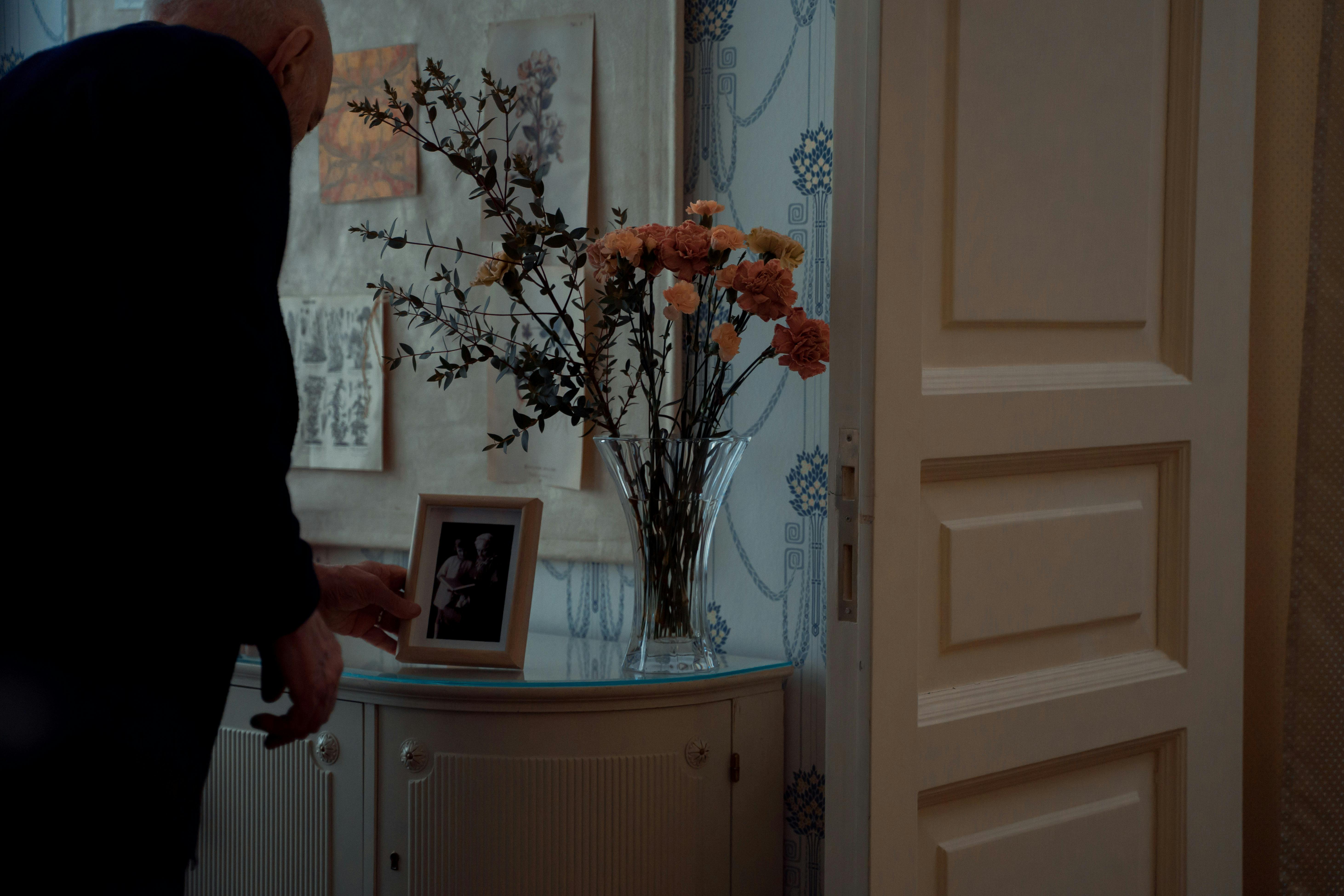
For illustration purposes only | Source: Pexels
Every morning, I woke up more from habit than will. I opened the kitchen window, breathed in the cold air, and sat at the same table, watching the same patch of light crawl across the wall.
When it reached the shelf with the teacups, I knew morning had come.
And that I was still alone.
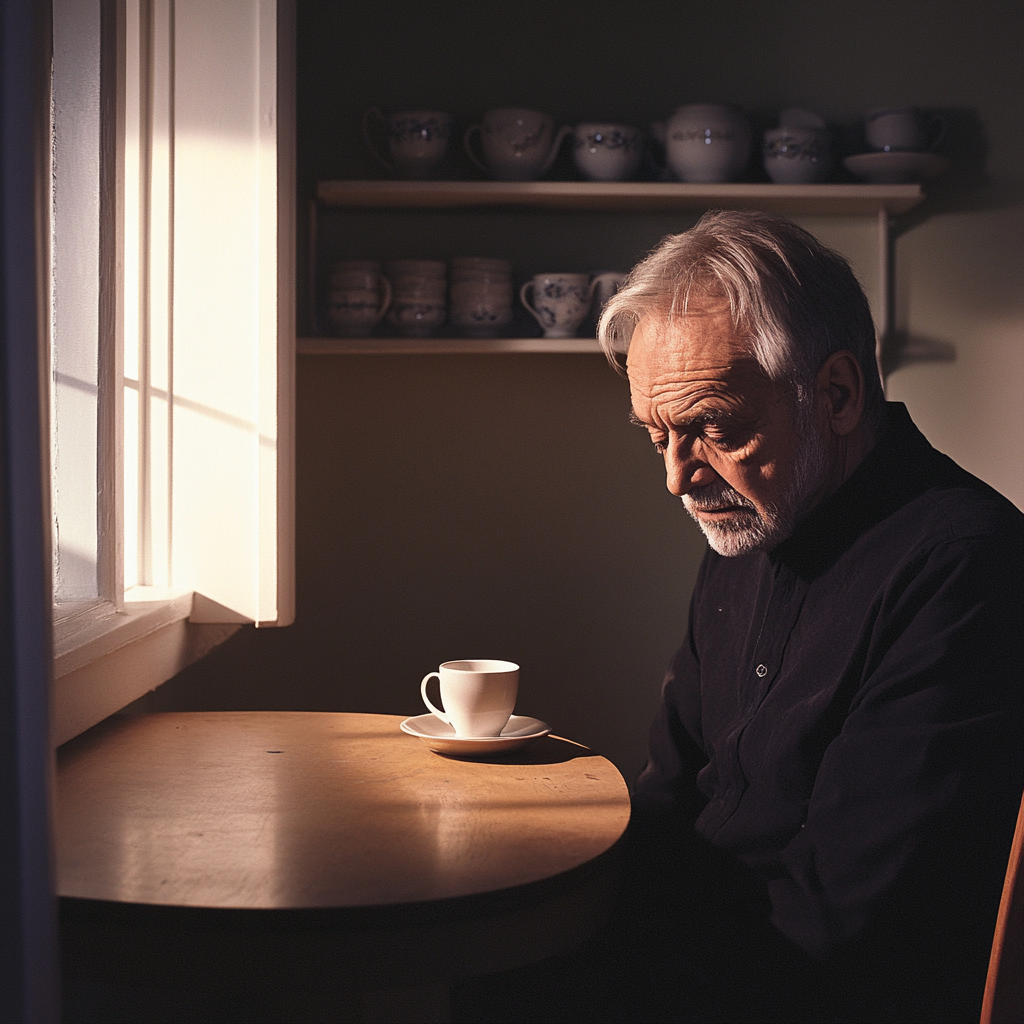
For illustration purposes only | Source: Midjourney
It had started that winter. Linda had fallen ill. She was shivering, coughing, and barely eating.
“I’ll call an ambulance,” I told her that evening. “We’re not playing games here, honey.”
“Oh, Frank, come on,” she waved her hand from under the blanket. “We can’t afford another medical bill. I’ll drive to the pharmacy myself. It’s five minutes.”
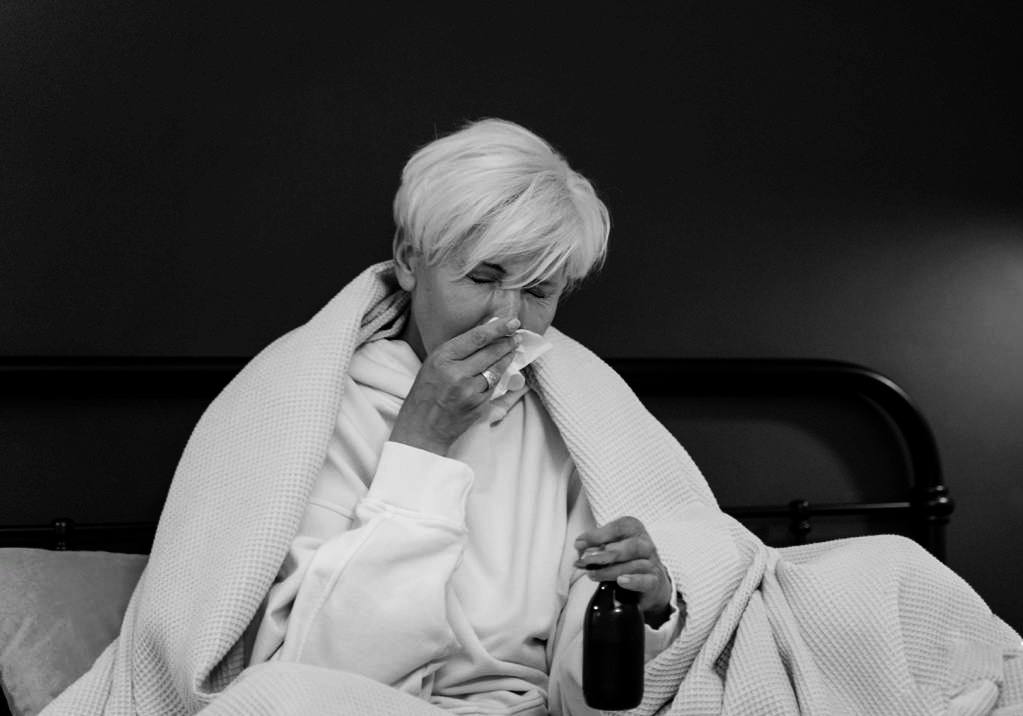
For illustration purposes only | Source: Pexels
“Linda, please,” I begged. “Don’t go. I’ll go. Or we’ll call a taxi.”
“I’m not a child. Just give me the keys, okay?”
I stood in the hallway holding her purse, watching her pull on her coat. For a moment, I thought of stopping her. But I didn’t.
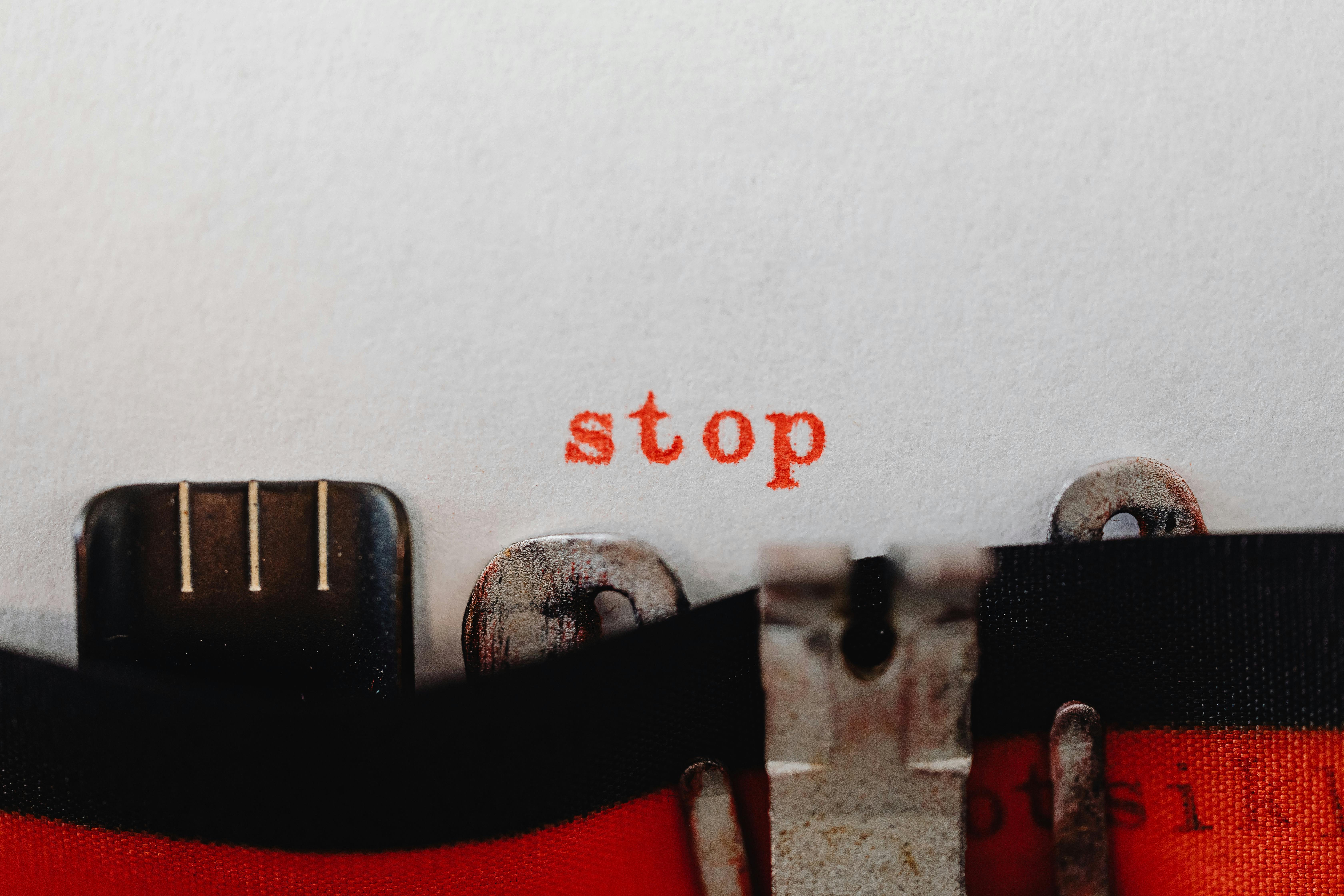
For illustration purposes only | Source: Pexels
She smiled.
“I’ll be back soon. Put the kettle on.”
I did.
But she never came back.
Her car slid off the road on black ice. A truck didn’t stop in time.

For illustration purposes only | Source: Pexels
At the funeral, I held myself together until Emily approached. I tried to explain.
“Sweetheart… it was an accident. I tried to stop her.”
She didn’t meet my eyes.
“You should’ve tried harder. If you’d just once stood your ground… And now she’s dead. Because you let her leave.”
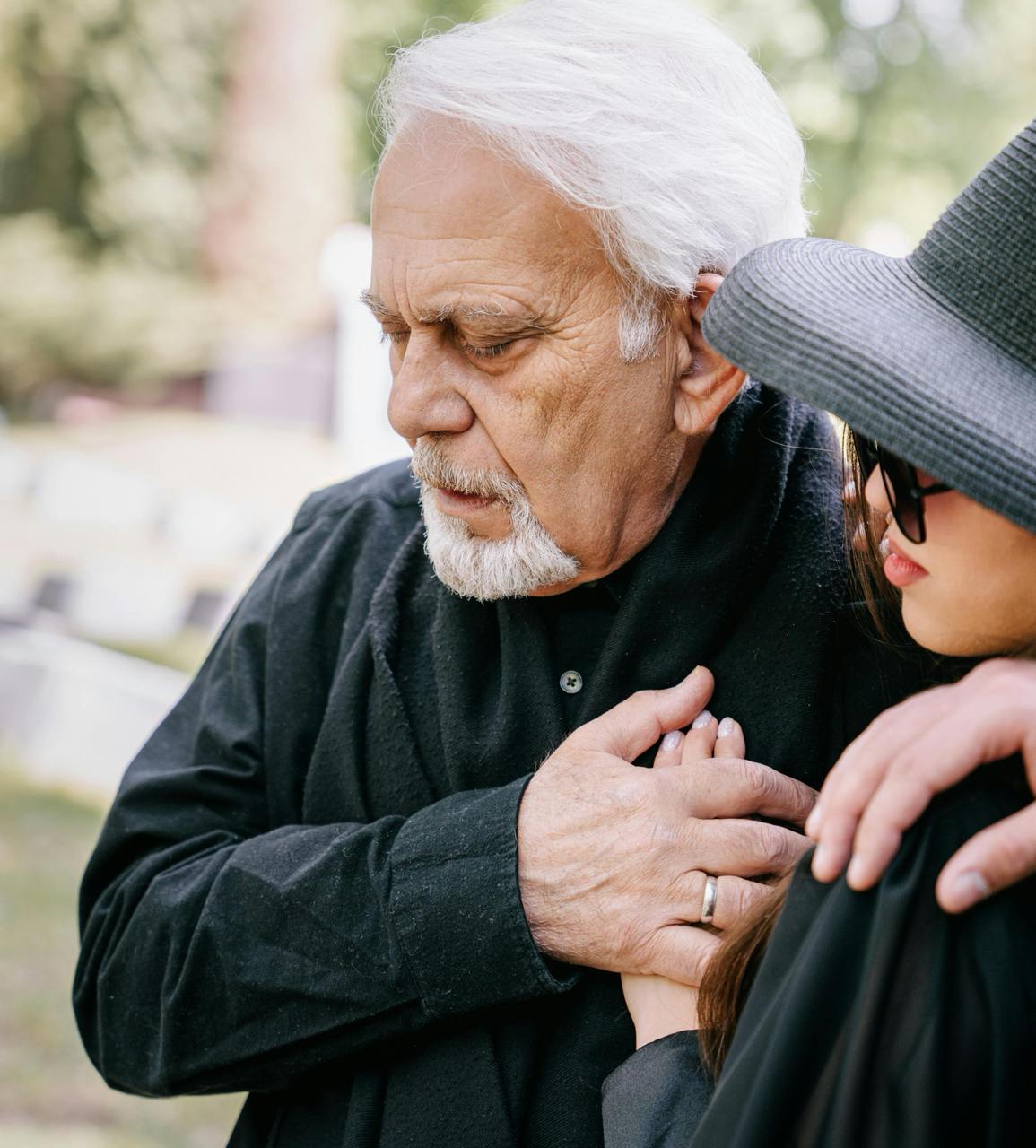
For illustration purposes only | Source: Pexels
I wanted to speak, to explain, to shout…. But the words never left my throat. So, that was the last time we spoke.
Since then — nothing.
I called every few months. Sent little notes. Photos from the past — her first bike ride, Christmas by the fireplace.

For illustration purposes only | Source: Pexels
Sometimes I left voicemails like:
“Hi, Emily. It’s Dad. Just wanted to hear your voice.”
But the silence remained. No replies. Not even a card for Christmas.
I learned how to live cheaply. Slept in my coat in winter when the radiator barely worked. Lived on tea and dry toast.
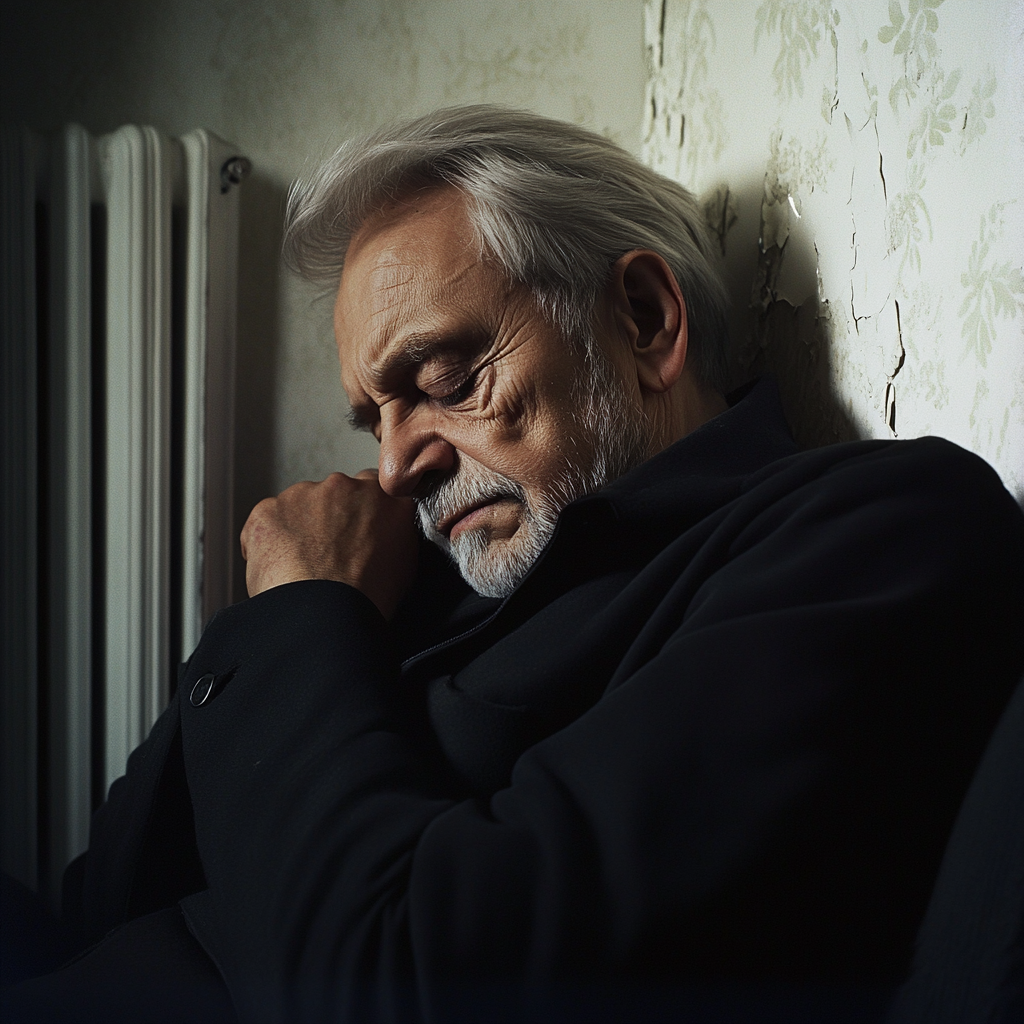
For illustration purposes only | Source: Midjourney
My pension wasn’t much, but I saved every spare penny. I stashed it in an old biscuit tin in the wardrobe, under my folded shirts.
It was my safety net. For when I got too sick to care for myself. For the time when no one would be around to help me. I never touched that money. Not for food, not even when my shoes had holes in them.
Better to freeze now than beg later.
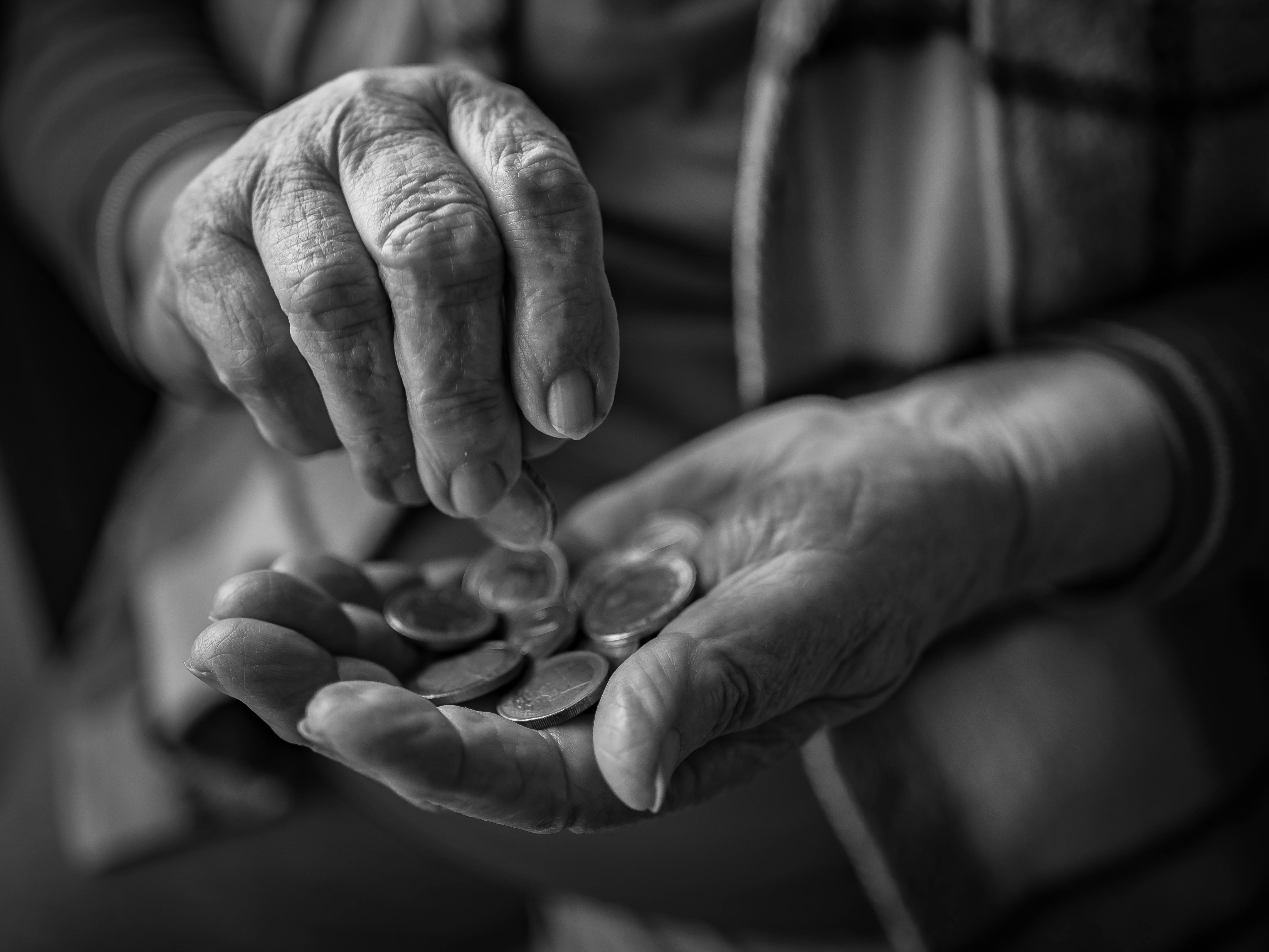
For illustration purposes only | Source: Pexels
One morning, I stared at the latest electric bill. The numbers blurred in front of me.
“That’s it. I’ve had enough.”
On the grocery store bulletin board, I noticed a handwritten note:
“Looking for a part-time janitor at Little Pines Preschool. Morning shift.”

For illustration purposes only | Source: Midjourney
I stood in front of it for a long time. Eventually, I pulled off the tab with the number and slipped it into my coat pocket.
I thought I was just taking a job. I had no idea I was about to find the one thing I never dared hope for.
***
I started working at the preschool the following week.
I woke up at dawn, drank strong coffee, pulled on my old brown sweater, and stepped out into the still-dark morning.
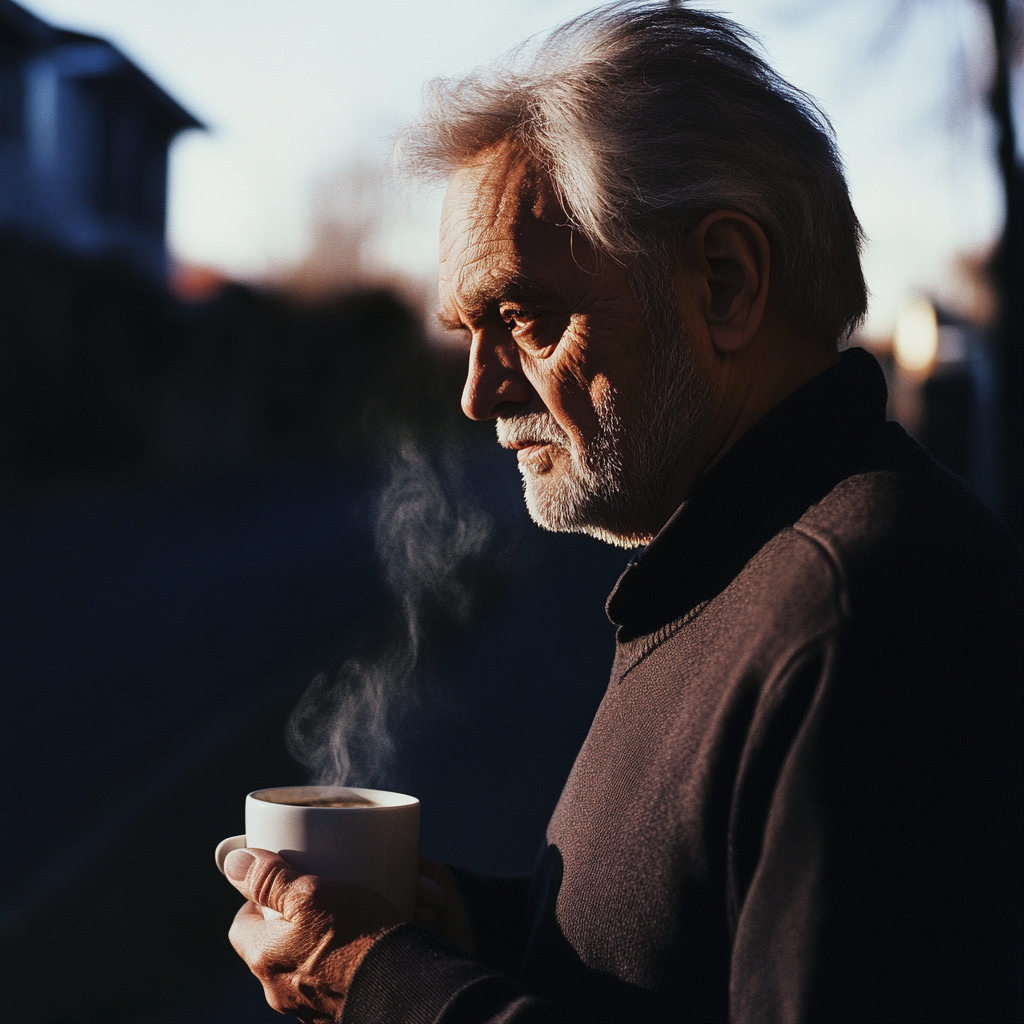
For illustration purposes only | Source: Midjourney
Where there had once been silence, finally there was laughter. Tiny faces, bright jackets, and backpacks tangled with dinosaurs and mermaids.
I didn’t feel like an outsider. Quite the opposite.
“Good morning, Frank!”
The kids always shouted the moment I opened the gate.

For illustration purposes only | Source: Midjourney
I became part of their morning ritual. They waved at me with mittened hands, brought me leaves and chestnuts, they insisted we “absolutely must plant.”
But one little girl stood out from the rest from the very beginning.
“Are you a real shovel master?” she asked seriously on my first day, as I raked up wet leaves near the playground slide.
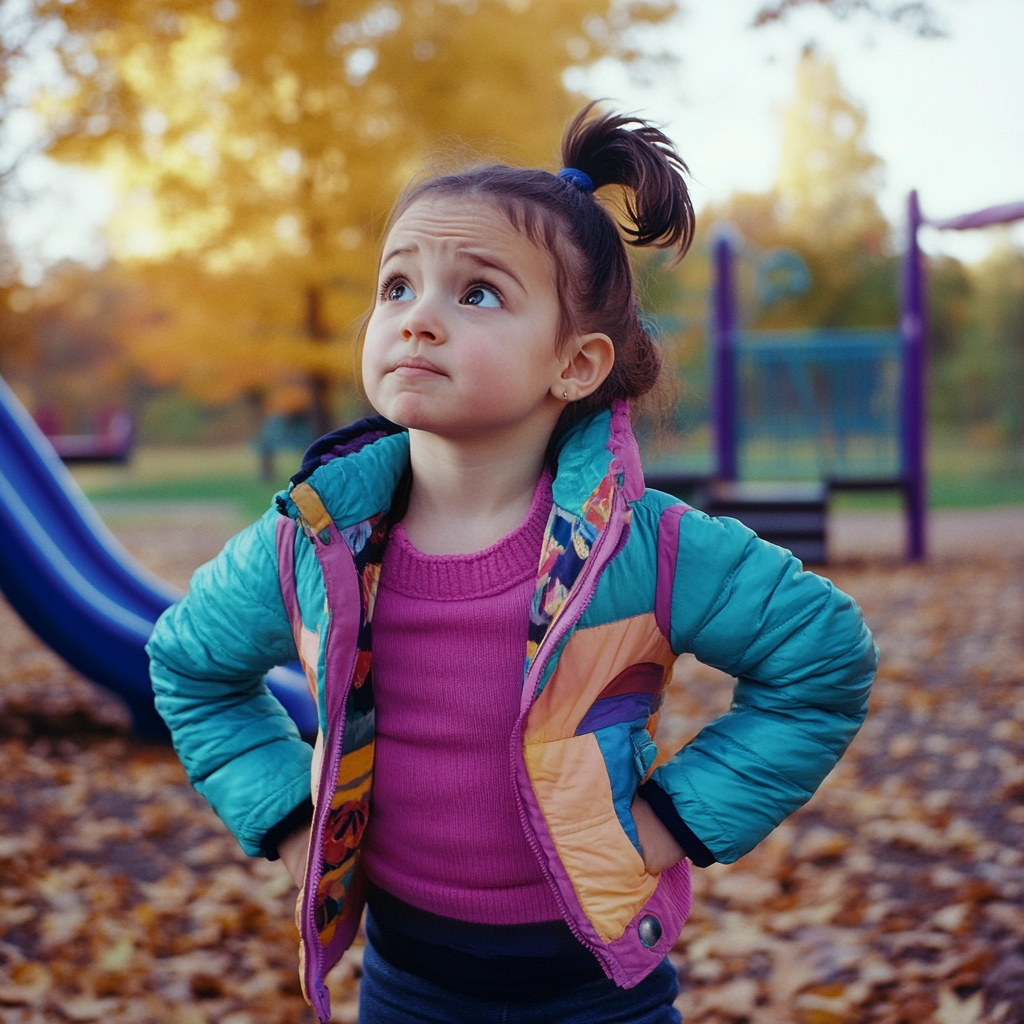
For illustration purposes only | Source: Midjourney
“Well, depends on how you look at it,” I said, scratching the back of my head. “I don’t have a diploma, but I’ve got years of experience.”
She laughed — a big, honest laugh, without fear of the new stranger.
“I’m Sophie. And I’m the boss of the Yellow Bunnies group.”

For illustration purposes only | Source: Midjourney
I smiled.
“Very pleased to meet you, Miss Bunny. My name is Frank.”
After that, Sophie was always nearby.
If I fixed a fence, she held the nails. If I swept the yard, she wiped the benches with a cloth. She was like a small sun — endlessly curious, a little bold, not like the other kids.
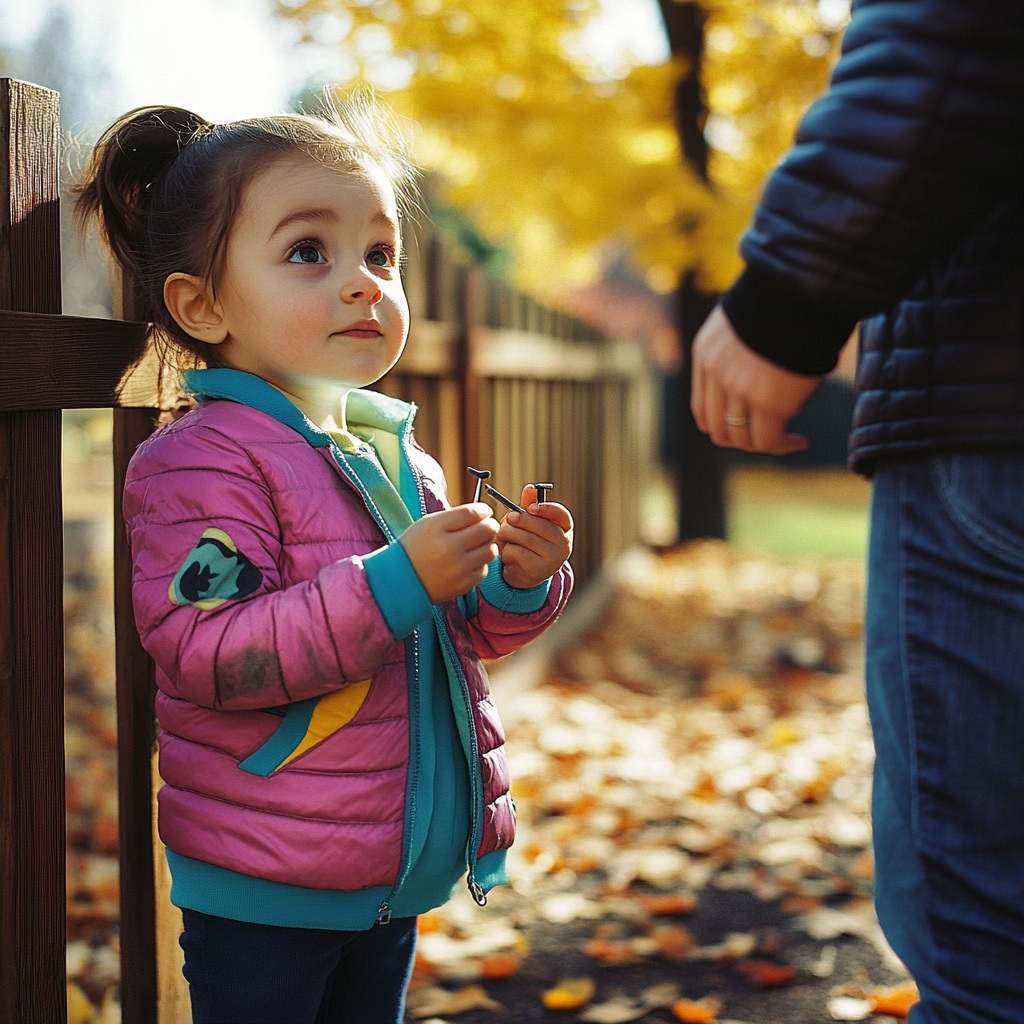
For illustration purposes only | Source: Midjourney
“Do you have a dog?”
“Were you ever a famous singer?”
“Have you ever flown to the moon?”
I answered every question as if it were the most important thing in the world. Sophie nodded seriously, as if filing that information away for later.

For illustration purposes only | Source: Pexels
One afternoon, as we sat together on a bench, she pulled a pendant out from under her sweater. Small, round, silver. Delicate engravings around the edge.
My breath caught.
“What a beautiful necklace. Who gave it to you?”
“My Mom! And she got it from my grandma.”
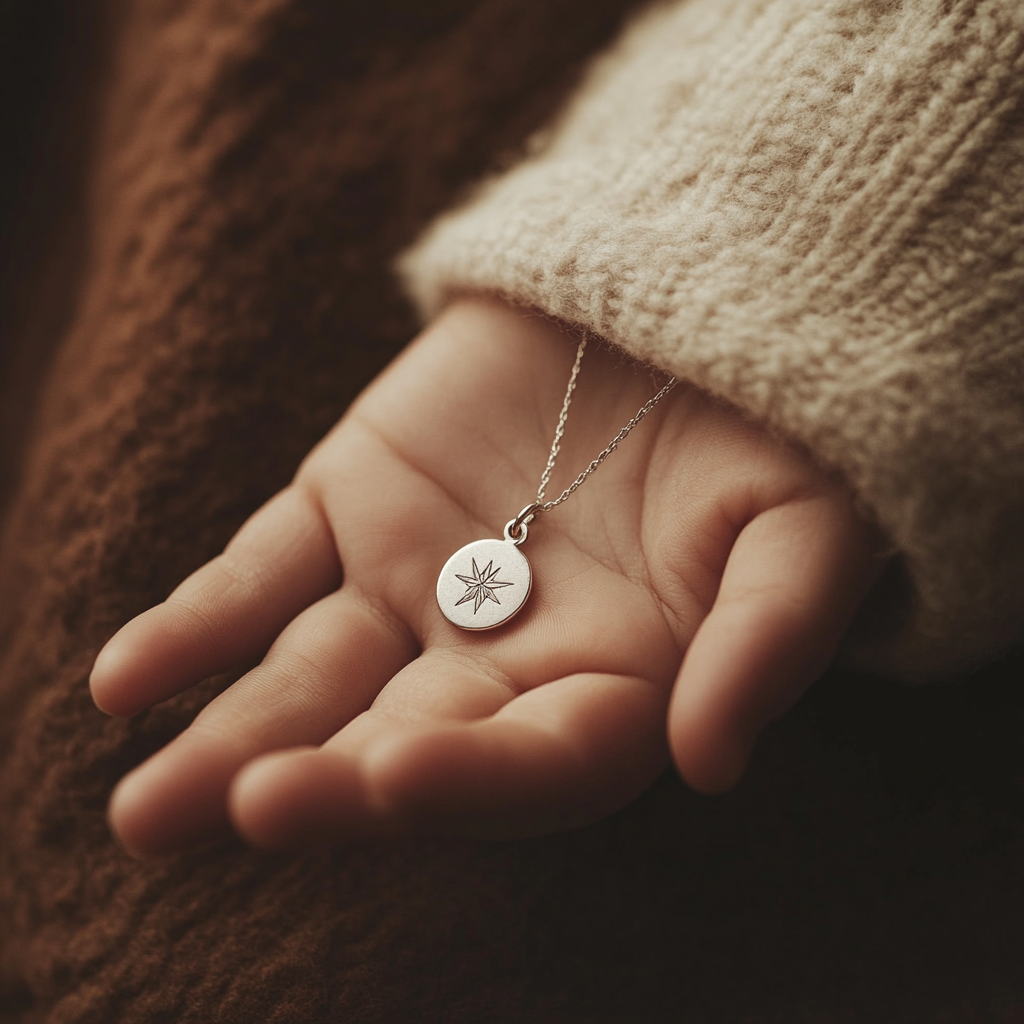
For illustration purposes only | Source: Midjourney
She patted the pendant proudly.
“It brings good luck. Mom says, ‘Wear it when you’re sad — Grandma will be right there with you.’”
I managed a weak smile.
I knew that pendant.

For illustration purposes only | Source: Midjourney
I had picked it out myself for Linda in a jewelry store 30 years ago. Linda had given it to Emily on her 18th birthday.
I remembered whispering back then:
“For our little star.”
I wanted to say something. Anything. But I just nodded.

For illustration purposes only | Source: Midjourney
“Do you have a granddaughter?” Sophie suddenly asked, looking straight into my eyes.
I swallowed hard.
“Maybe I do. Maybe I don’t. I don’t really know.”
“That’s sad,” she said thoughtfully. “How can someone not know about their own granddaughter?”
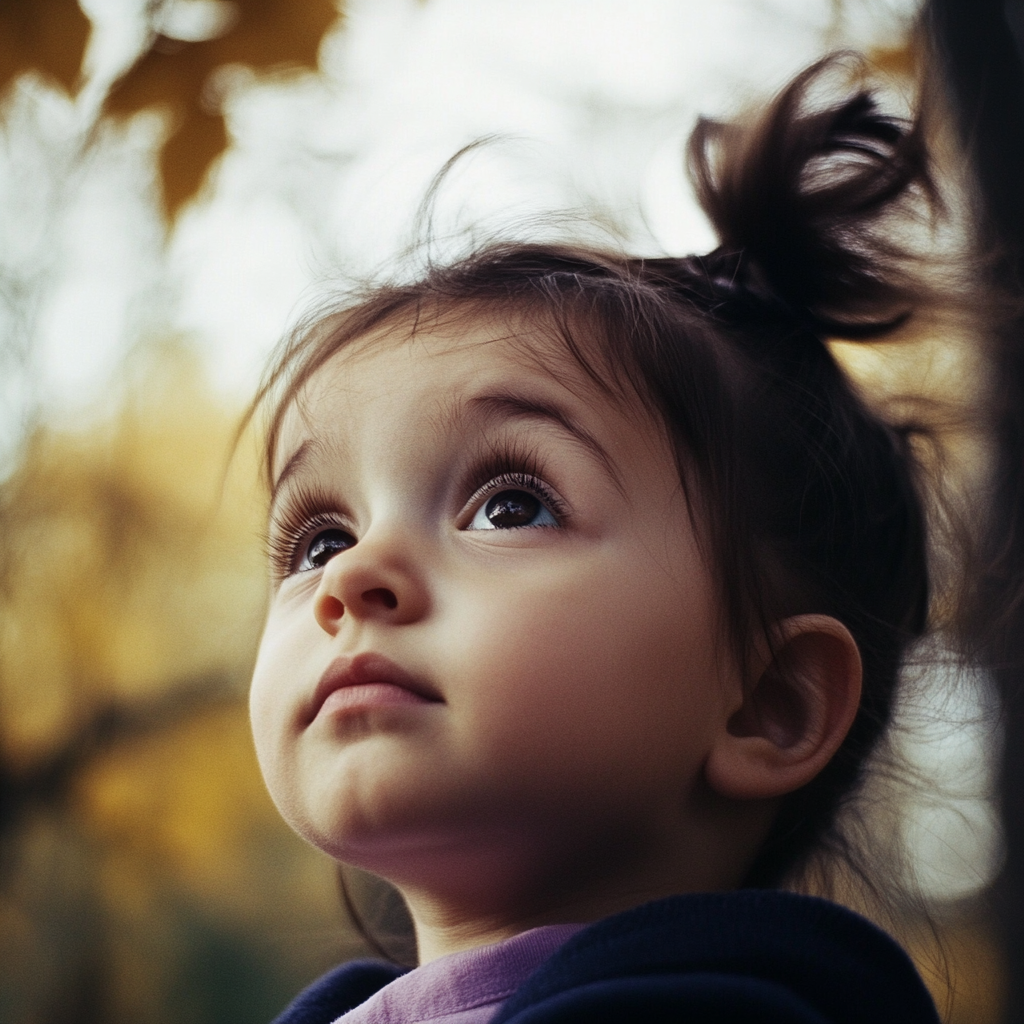
For illustration purposes only | Source: Midjourney
I shrugged, staring down at the faded sand under our feet.
“Sometimes people get lost. And sometimes… others lose them.”
Suddenly, Sophie grabbed my hand.
“My birthday’s coming up soon. I’ll be five! Will you come?”
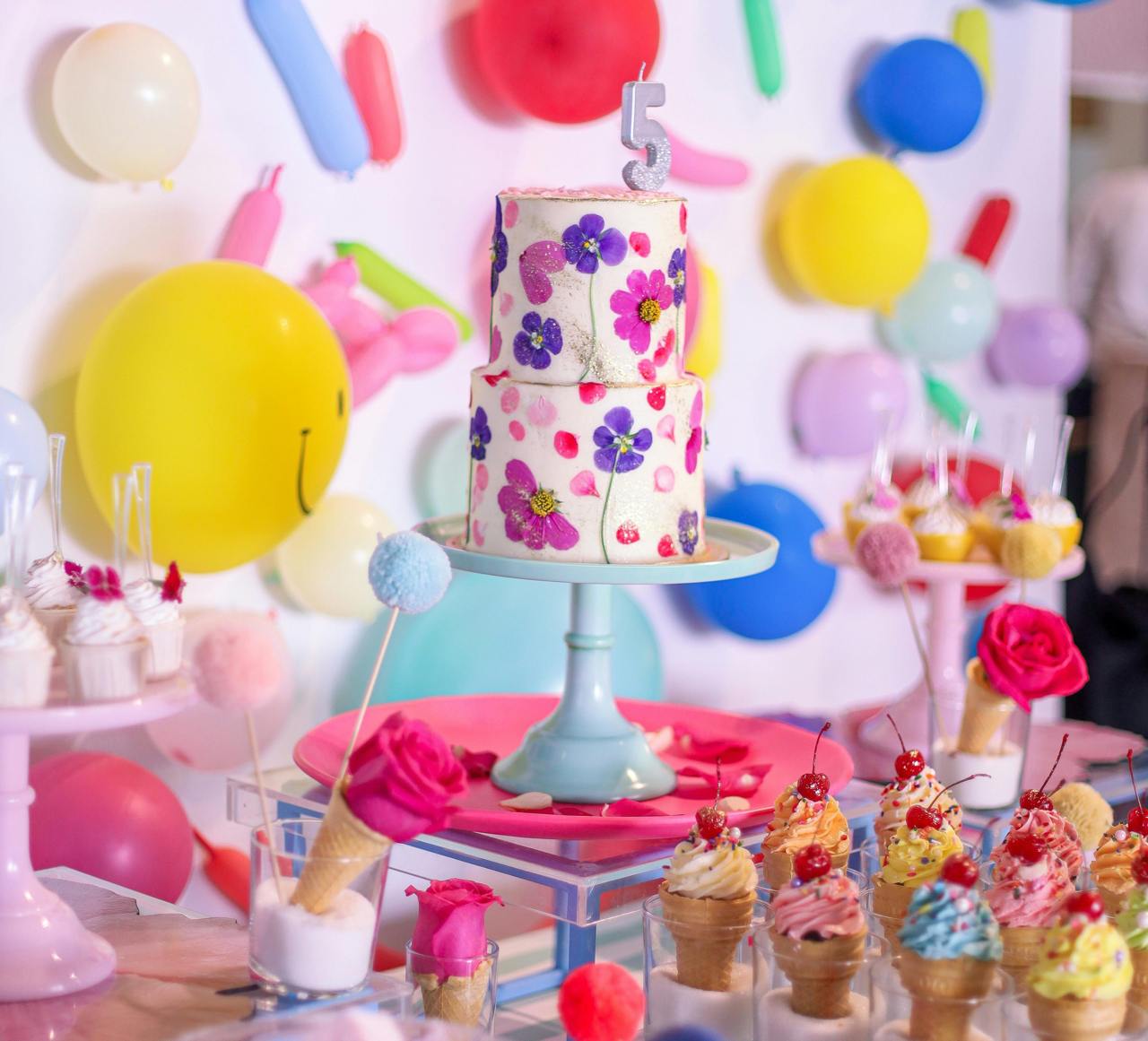
For illustration purposes only | Source: Pexels
“If you invite me,” I smiled, “I’ll definitely be there.”
“I’ll make you a special invitation myself, okay?”
“Okay.”
“There’s going to be lots of balloons! And cake! But don’t bring me a present, please. I already asked Mom for a piano, but she said it’s too much. Cake’s enough.”
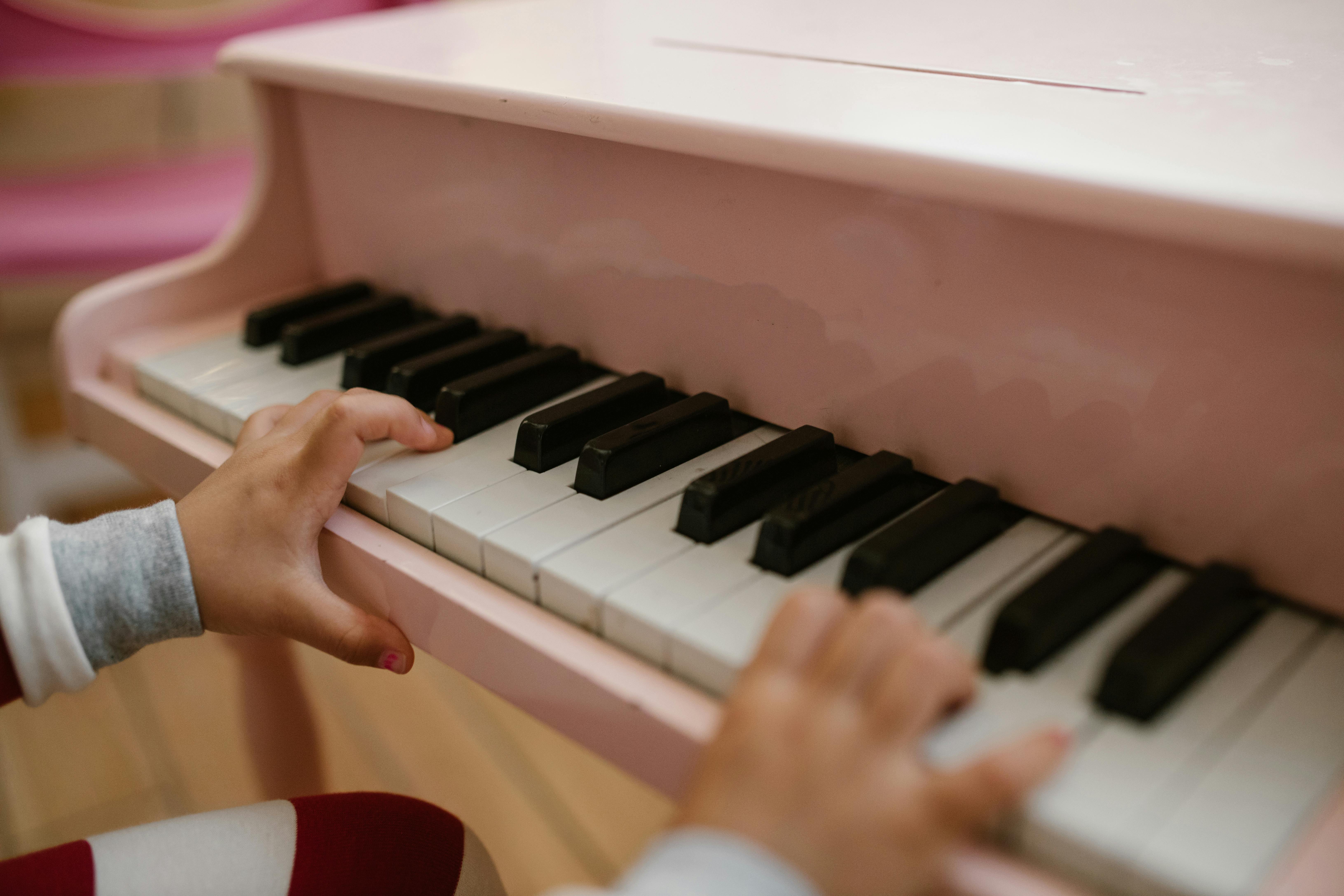
For illustration purposes only | Source: Pexels
“I’ll think about it. Maybe someone will show up with music anyway.”
Sophie laughed joyfully and ran back to her group.
I stayed sitting there on the bench. I didn’t know for sure. But my heart was already shouting — that was her. That was my granddaughter.
And if I was wrong, so be it. But if I was right…

For illustration purposes only | Source: Midjourney
***
The restaurant buzzed with music and laughter. Bright balloons floated against the ceiling, and a giant pink cake stood proudly on a long table surrounded by gifts.
I stood quietly near the entrance, holding a small box in my hand — a tiny piano charm on a silver chain, wrapped carefully, trembling slightly in my fingers.
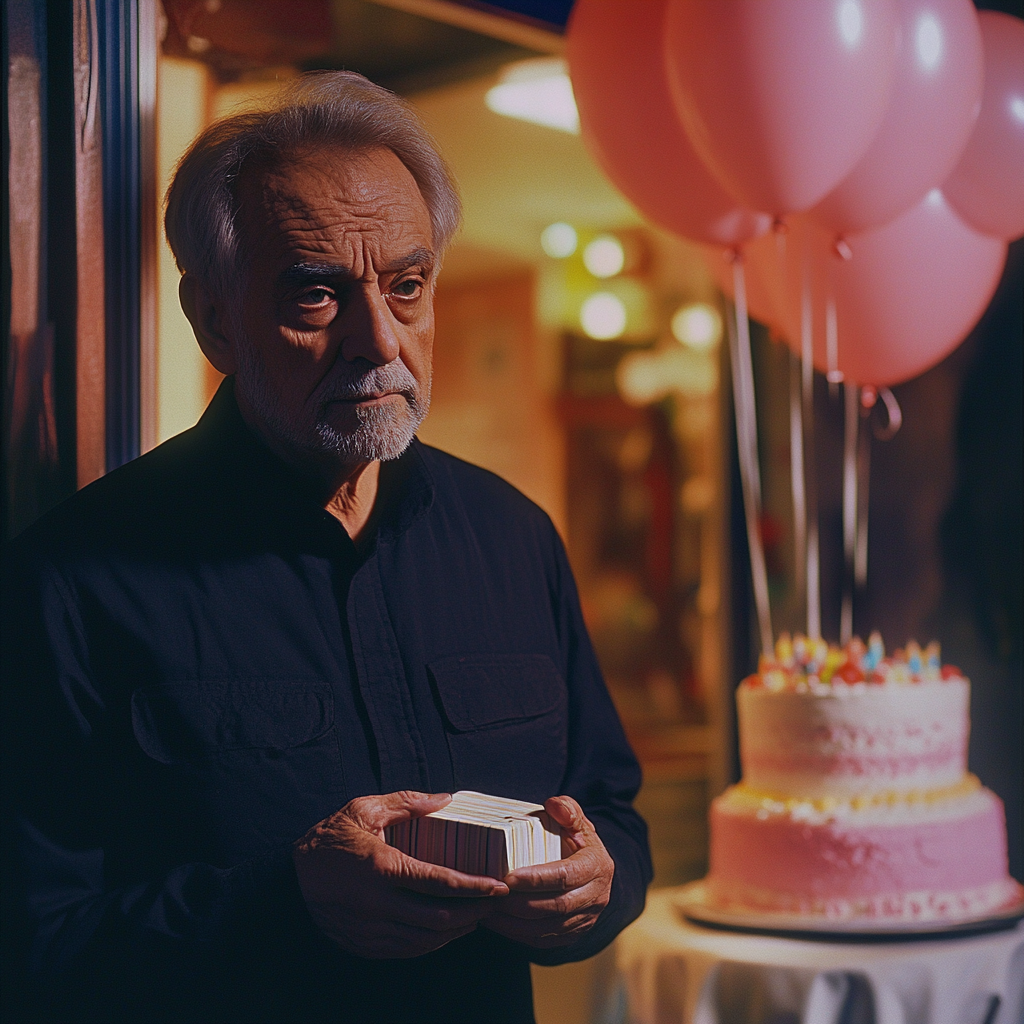
For illustration purposes only | Source: Midjourney
I had ironed my old white shirt until it nearly shone. My brown jacket, worn but clean, hung loose on my shoulders.
I wasn’t anyone special there. Just a man at the edge of someone else’s celebration.
Across the room, I saw Sophie. Her hair was tied up in two bouncy pigtails, her eyes lighting up when she spotted me.
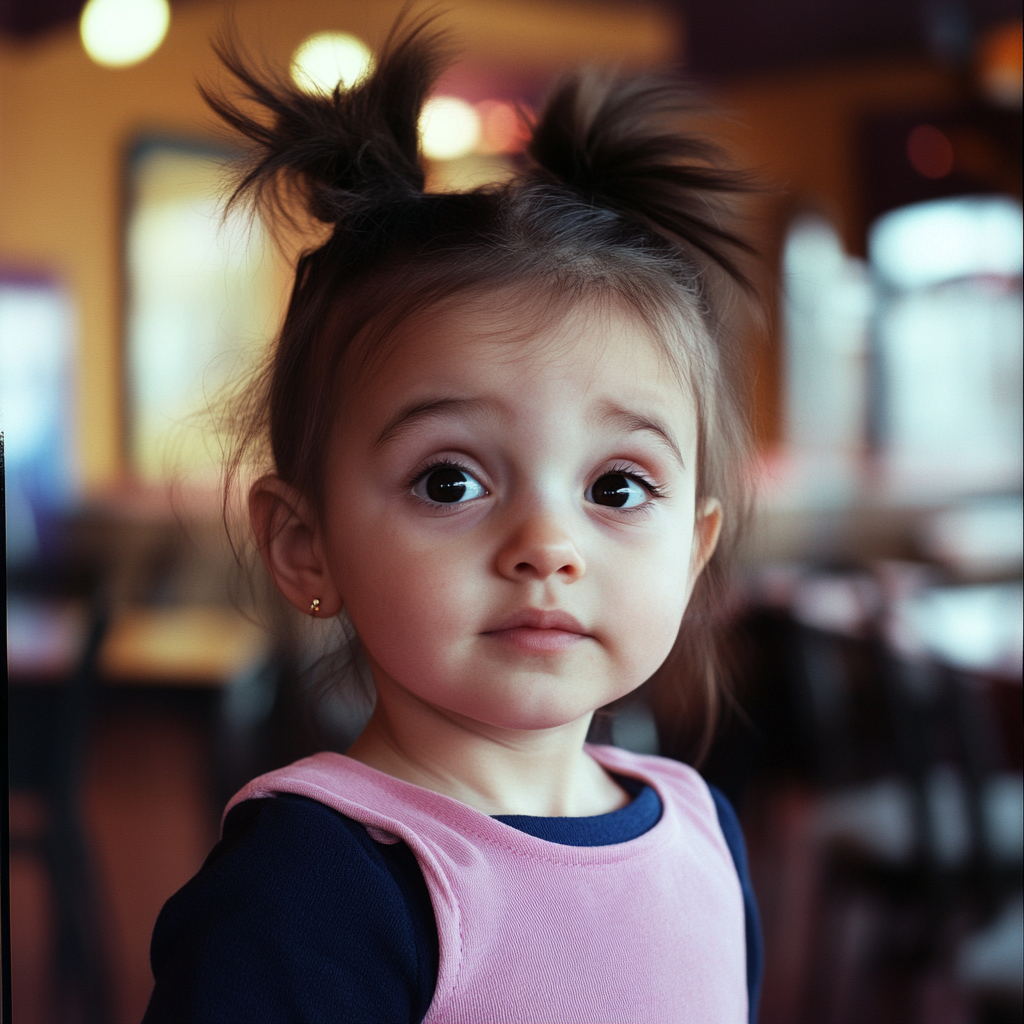
For illustration purposes only | Source: Midjourney
She began waving, her face beaming, but before she could get close, a hand clamped down on her shoulder.
Marianne. My daughter’s MIL. Tall, sharp-eyed, her pearl suit immaculate.
She bent low to Sophie, whispering harsh words into her ear, before steering her away, casting a glance at me. Recognition flickered across her face. Her mouth twisted into a tight smile, a hunter spotting a trapped prey.
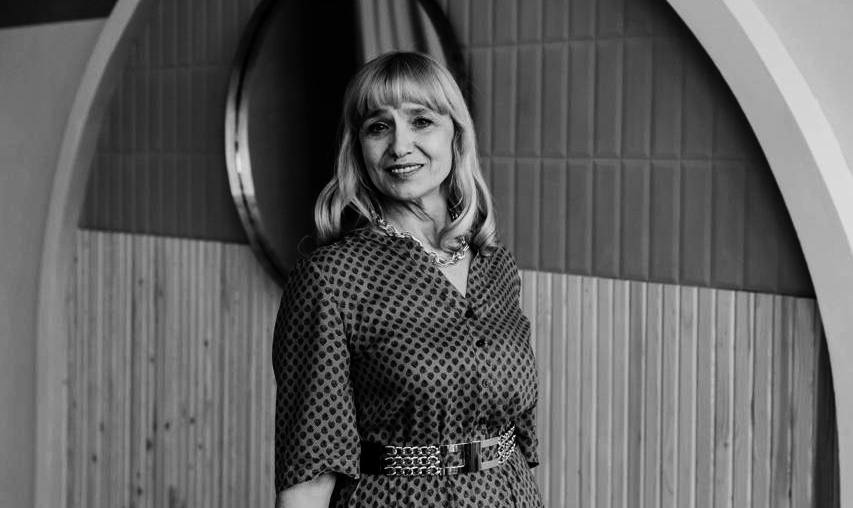
For illustration purposes only | Source: Pexels
“Well, look who crawled out from under a rock,” she said, just loud enough for others to hear.
“How touching. Thought you’d come begging, old man?”
I stiffened. “I’m here because Sophie invited me. Not for anything else.”
Marianne’s laugh was cruel.
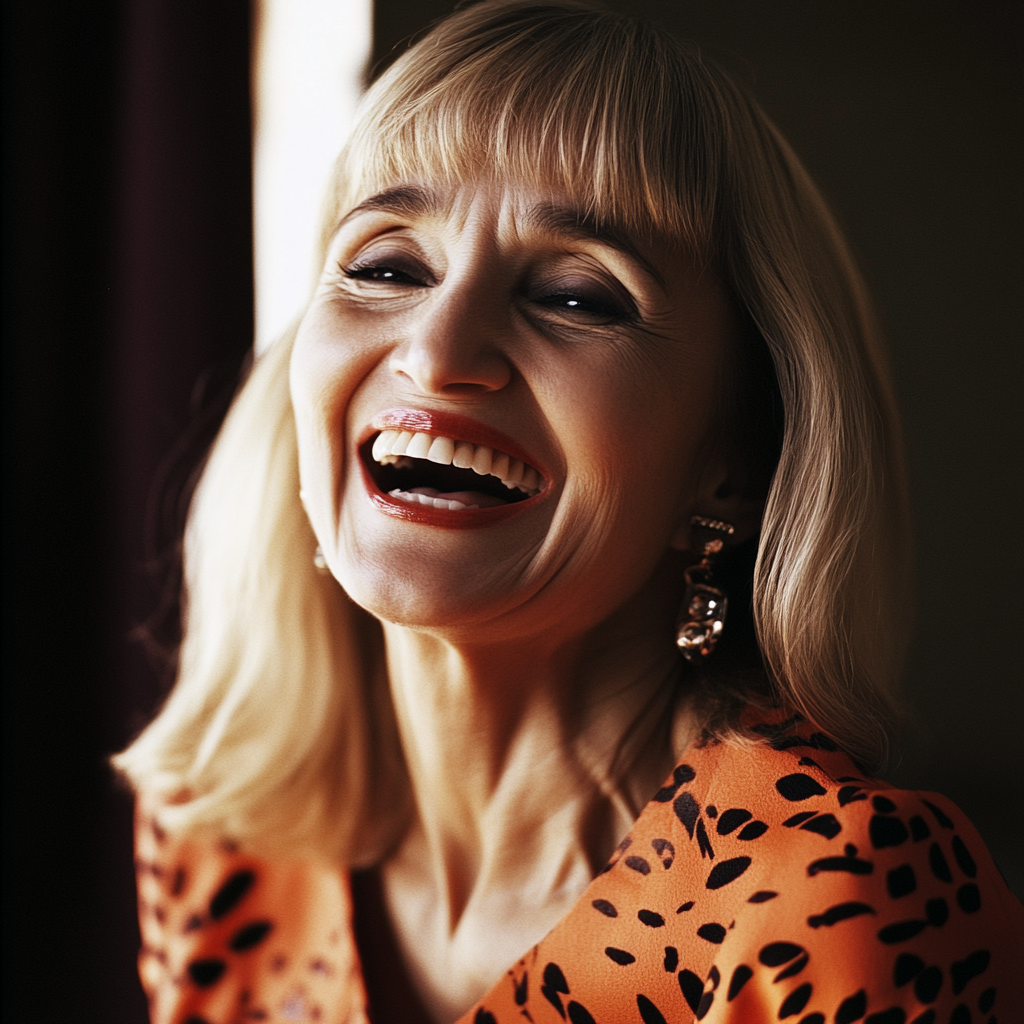
For illustration purposes only | Source: Midjourney
“Oh, of course. That’s why you disappeared for five years, right? Left poor Emily to grieve alone while you drank yourself into oblivion?”
I opened my mouth to protest, but the injustice caught in my throat. Behind Marianne, I saw Emily returning with a tray of cupcakes. She hadn’t seen us yet.
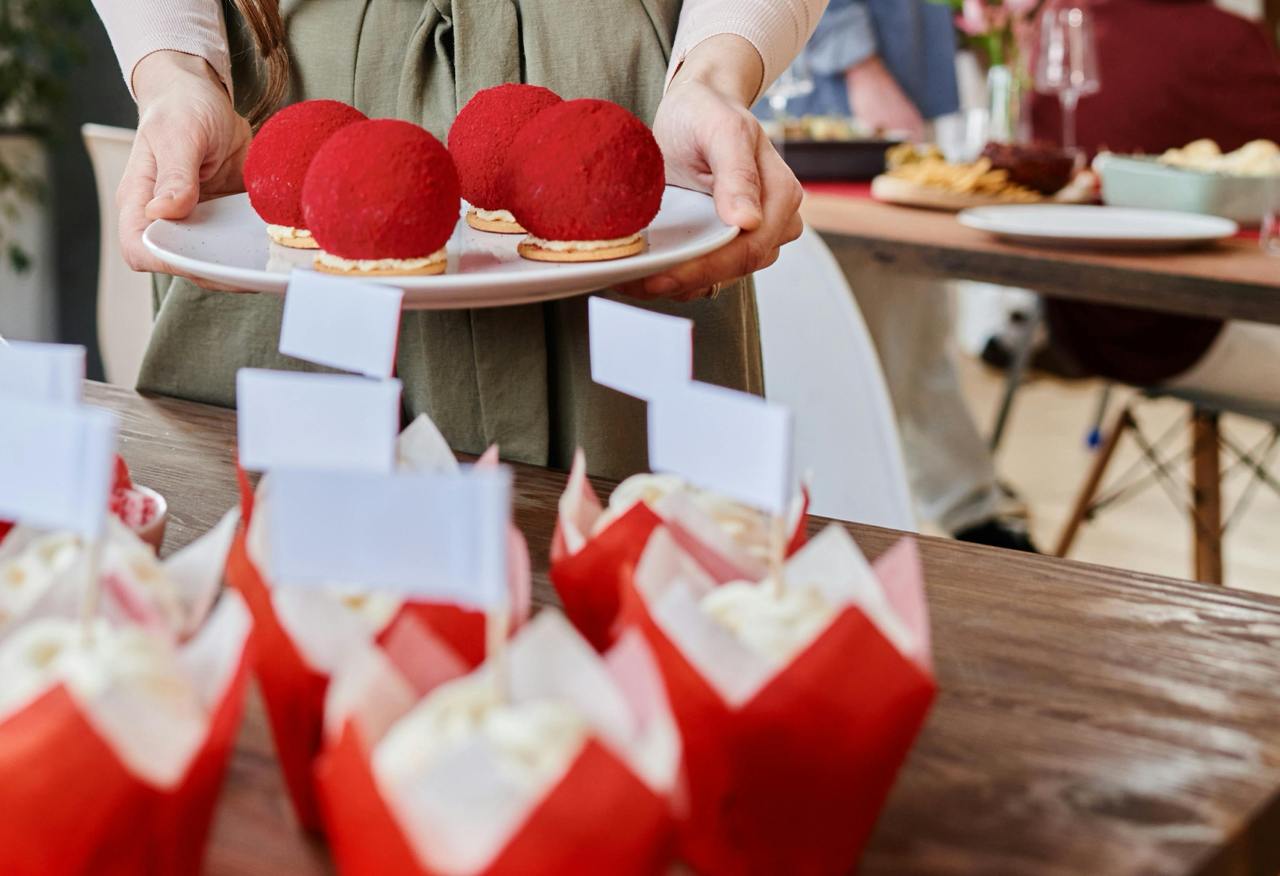
For illustration purposes only | Source: Pexels
Marianne leaned closer, her voice a hiss:
“You think you can just show up and they’ll welcome you with open arms? After everything?”
I shook my head.
“I never left. I wrote. I called. I sent letters. Every Christmas, every birthday…”

For illustration purposes only | Source: Midjourney
She laughed again, low and bitter.
“And what letters? What calls? Emily never got anything from you.”
From the corner of my eye, I saw Emily finally looking at us. Frowning. Approaching.
“You’re lying,” I said, louder this time.
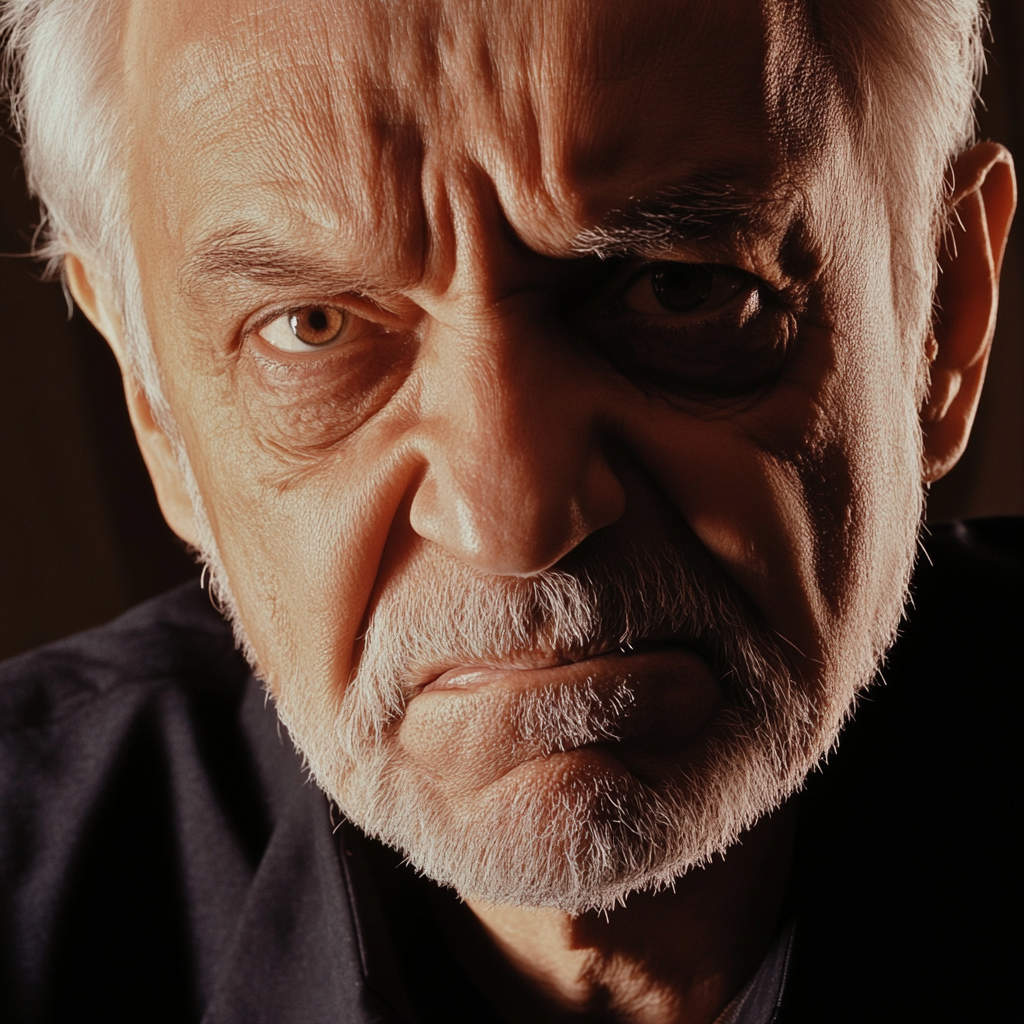
For illustration purposes only | Source: Midjourney
“Am I? Then where were all those precious letters?”
Emily was close now, close enough to hear.
“I sent you letters too!” she blurted out, her voice cracking. “I wrote… I wrote so many times… birthday cards, Christmas cards… You never answered!”
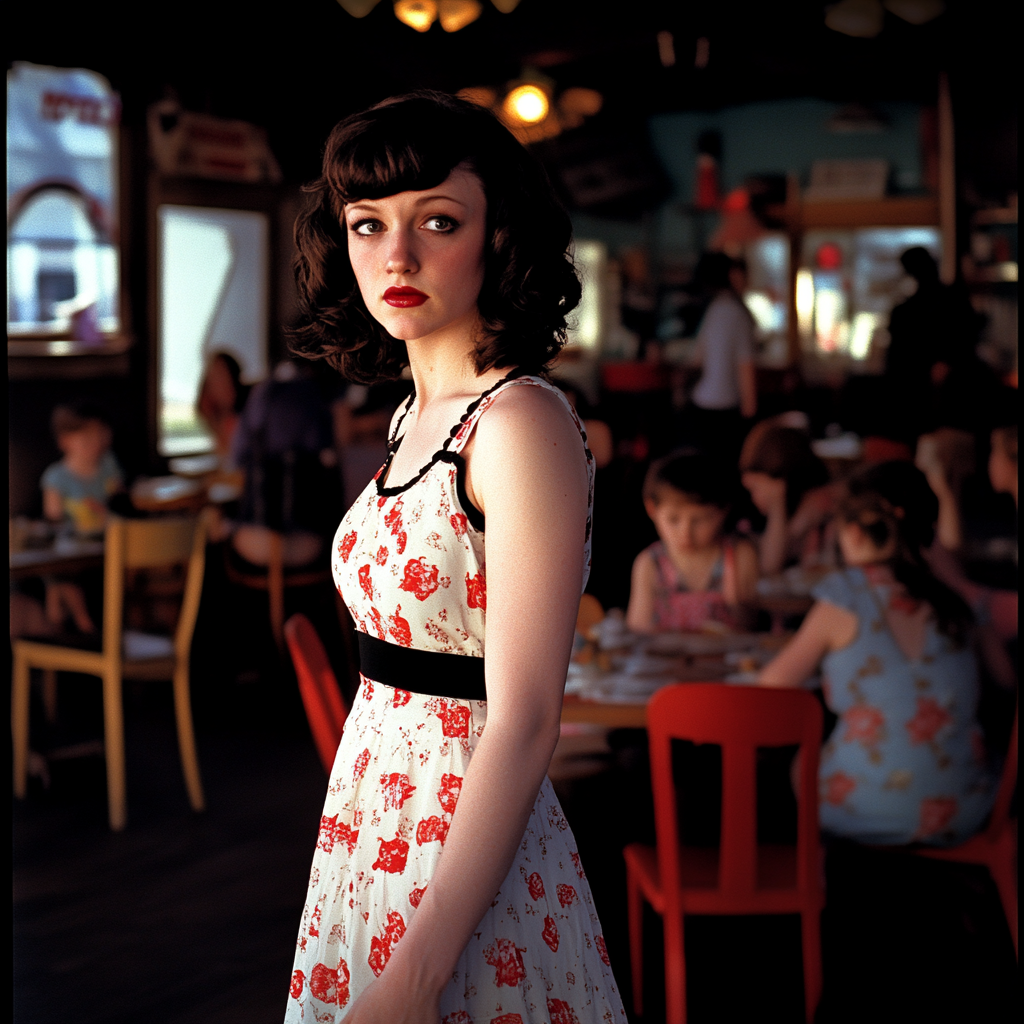
For illustration purposes only | Source: Midjourney
My heart lurched.
“I never got them. Not one.”
For a heartbeat, silence hung between us. Emily turned slowly to Marianne, horror dawning in her eyes.
“You said… You said he didn’t want anything to do with me. You told me he didn’t care.”
Read alsoMy Family Turned Against Me When I Became a Private Detective, but a Teen Girl’s Case Changed Everything — Story of the DayFebruary 06, 2025My Sister Named Her Son the Same as Mine! I Didn’t Understand Why Until Our Mother’s Will Was Read – Story of the DayApril 04, 2025My Husband Left Me for His Mistress When I Ended Up in a Wheelchair But I Refused to Let Him Take Our Daughter Too — Story of the DayMarch 31, 2025
Marianne’s face hardened.
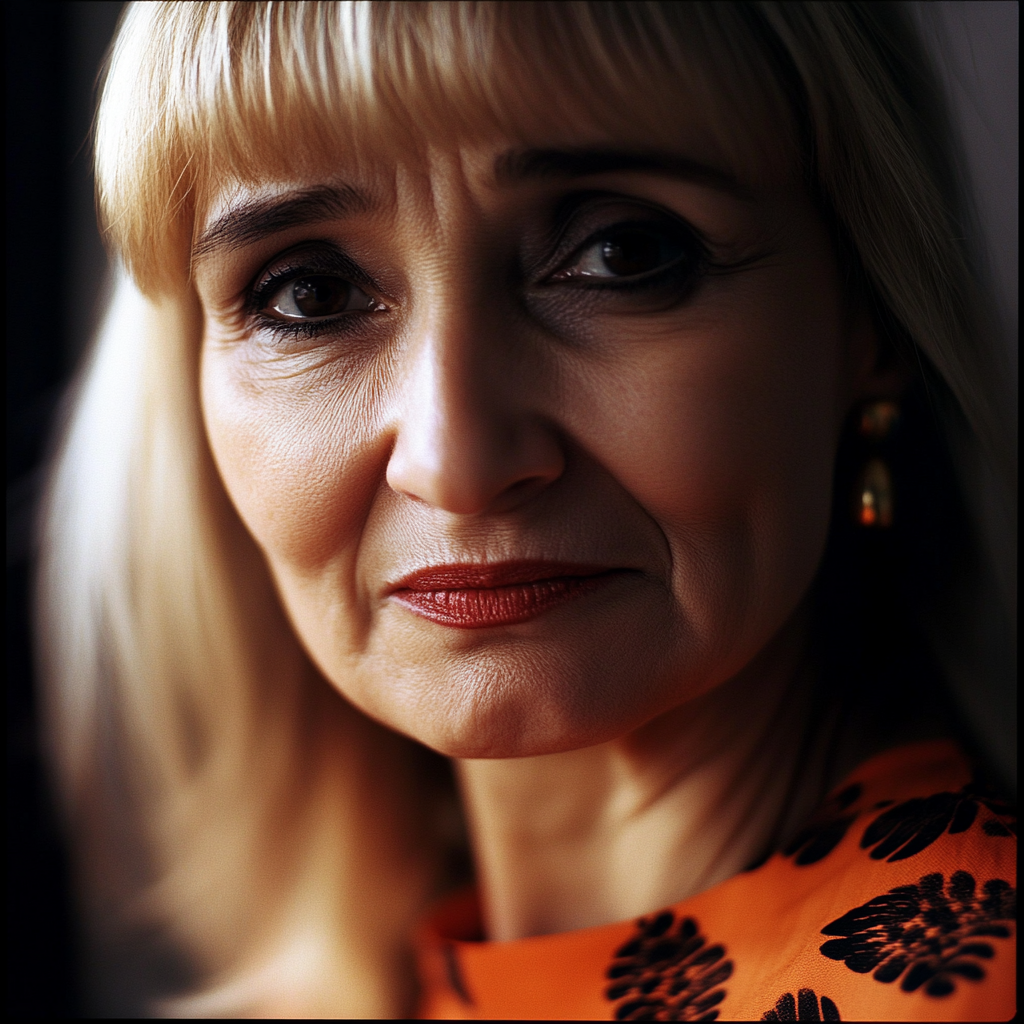
For illustration purposes only | Source: Midjourney
“I protected you. He’s a burden, Emily! Always was. I did what I had to do.”
“You stole my letters,” Emily said, her voice rising. “You lied to me! For years!”
A few guests were watching now, their smiles fading into uncomfortable glances.
“And you,” Emily turned on me, tears brimming. “You thought I didn’t care either.”
I nodded, throat too tight to speak.
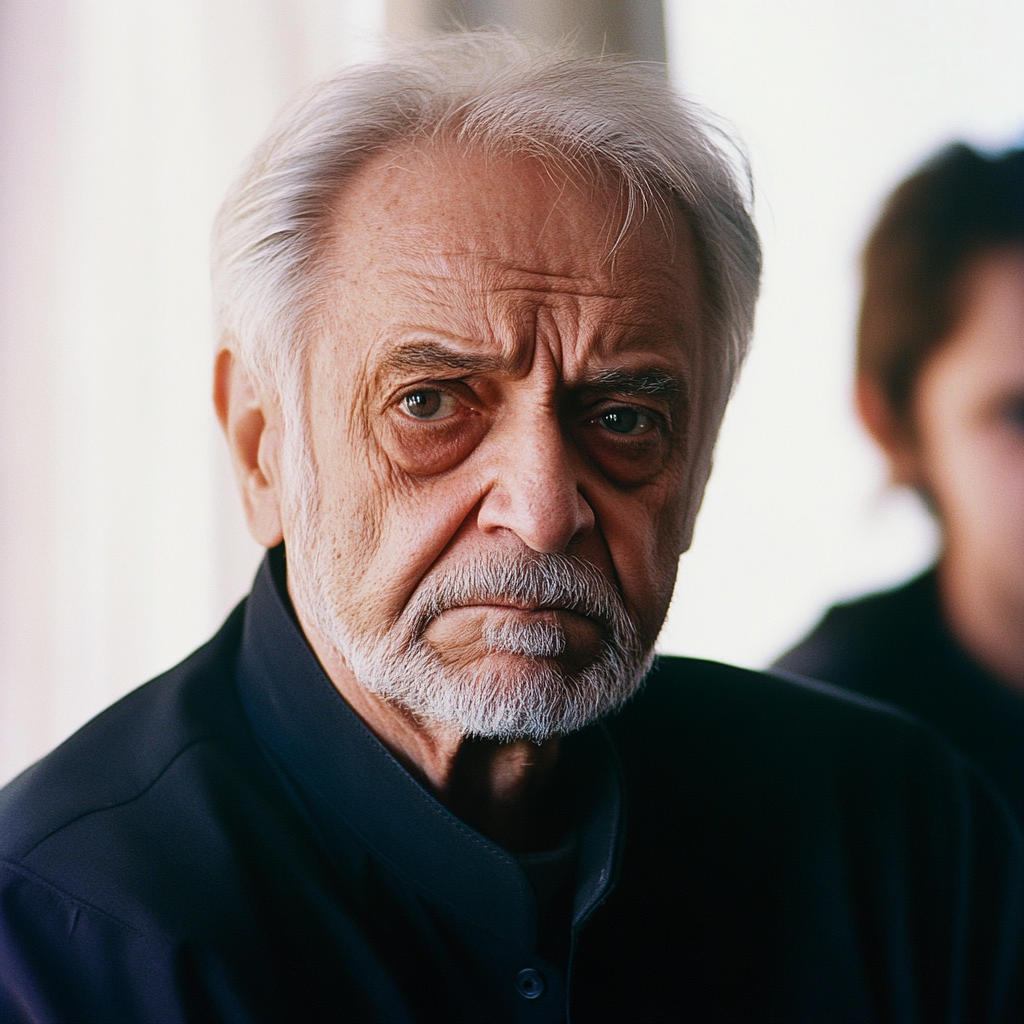
For illustration purposes only | Source: Midjourney
Suddenly, a delivery truck pulled up outside. Two men climbed out, wrestling a small upright piano onto the sidewalk.
“Delivery for Sophie!”
I looked down at my shoes.
“I don’t have much,” I said quietly. “Just my pension. But I saved for that. For her.”

For illustration purposes only | Source: Pexels
Emily covered her mouth with her hands, shaking her head.
“I thought you didn’t love me anymore.”
“I never stopped loving you. Not for a second.”
Tears streamed down her cheeks.
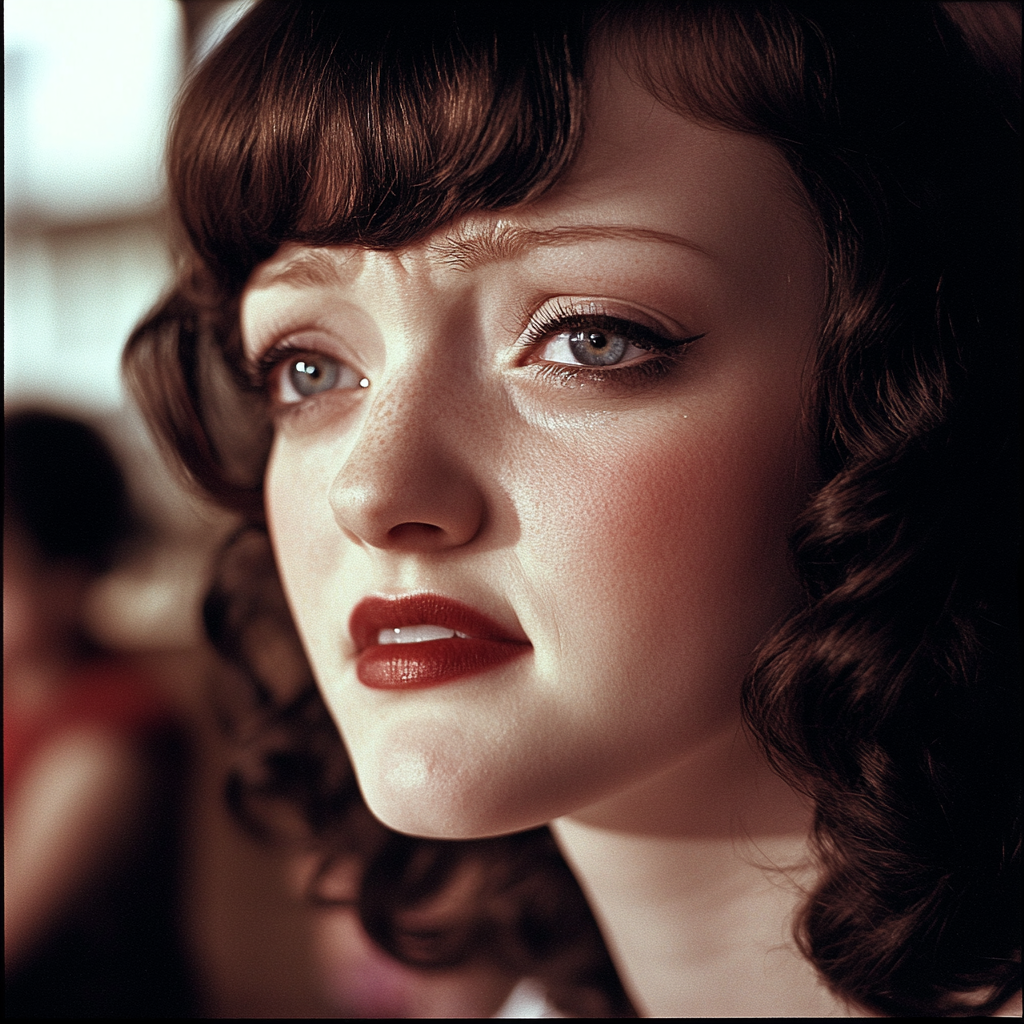
For illustration purposes only | Source: Midjourney
Without warning, Emily stumbled forward and threw her arms around me, squeezing tightly, as if afraid I might vanish.
“I’m so sorry. I’m so sorry, Dad.”
I held her back, my chest breaking open from years of silence and grief.
Meanwhile, Marianne stood frozen, pale and rigid, ignored by everyone around her.
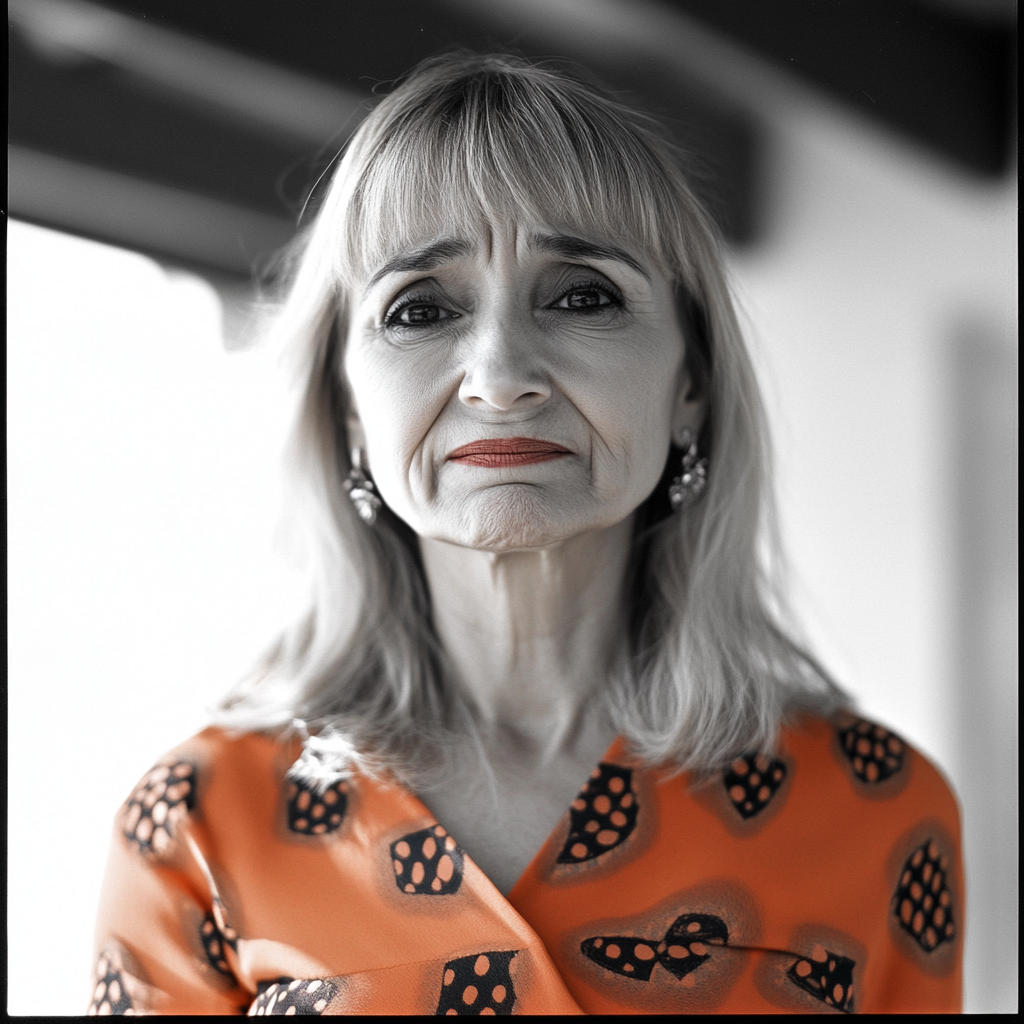
For illustration purposes only | Source: Midjourney
Sophie, clutching a balloon, peeked out from behind a chair.
“The storm ended?”
Emily wiped her eyes and knelt beside her.
“Sophie… This is your grandpa. The best man in the world.”
Sophie looked up at me, grinned, and said, loud and clear:
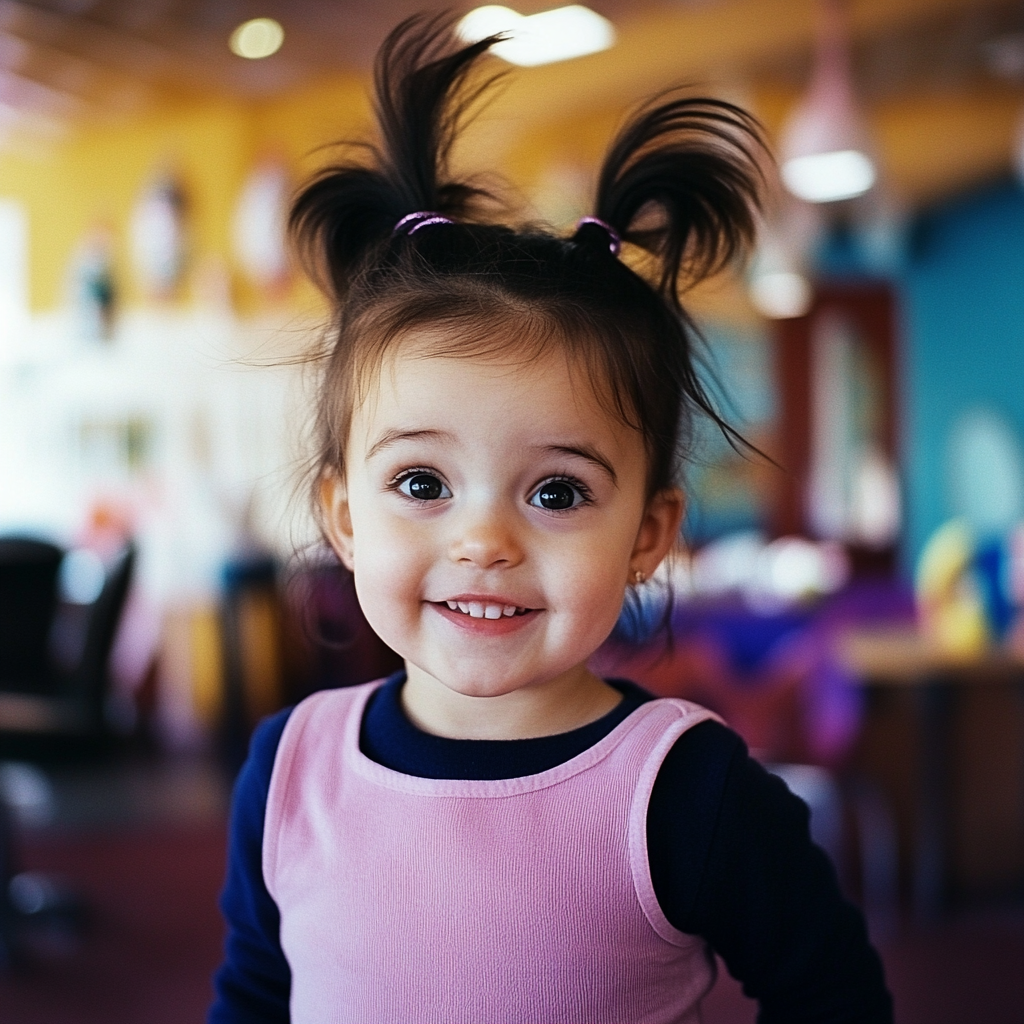
For illustration purposes only | Source: Midjourney
“So… you do have a granddaughter after all, huh? Now you really know.”
For a second, the whole world seemed to hold its breath. I laughed and dropped to my knees to pull her into my arms.
We had lost so many years. But standing there, holding Sophie in my arms, I knew — the best ones were still ahead.

For illustration purposes only | Source: Midjourney
Tell us what you think about this story, and share it with your friends. It might inspire them and brighten their day.
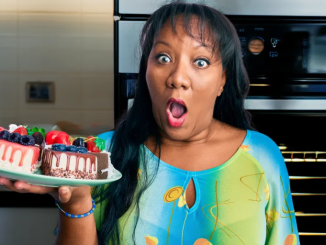
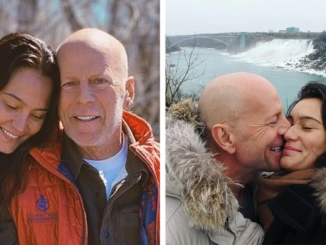
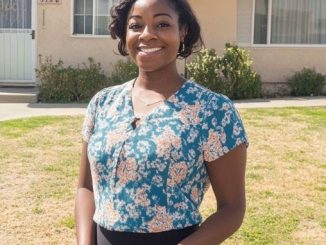
Leave a Reply